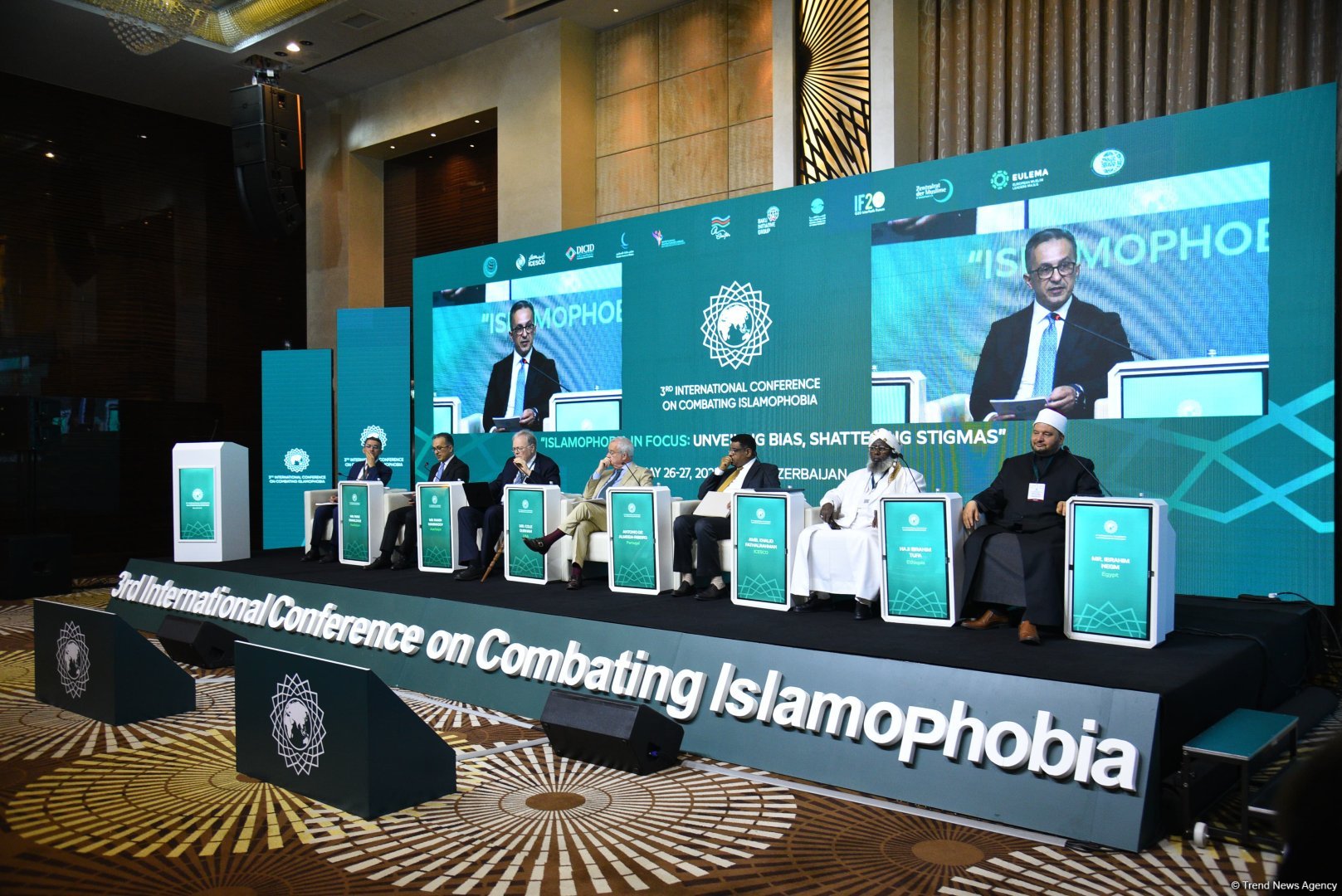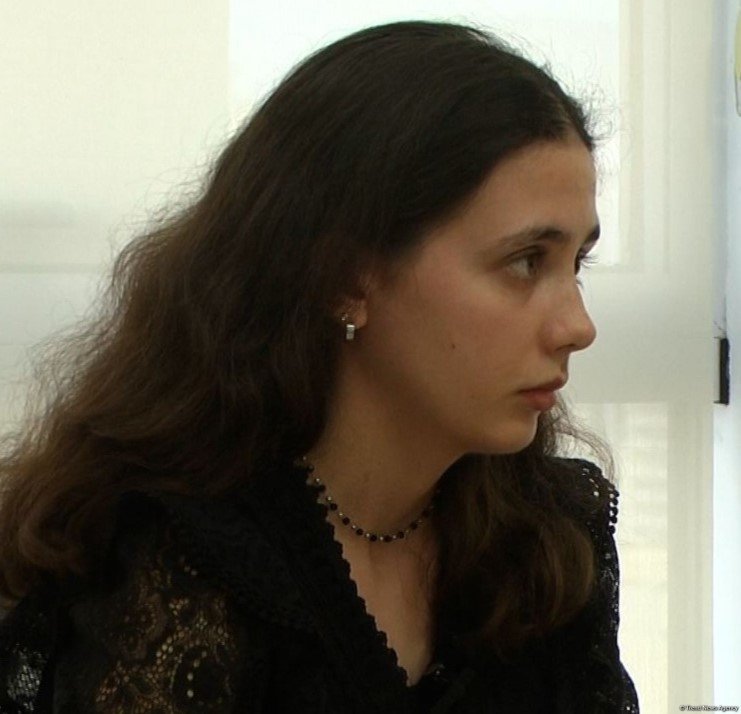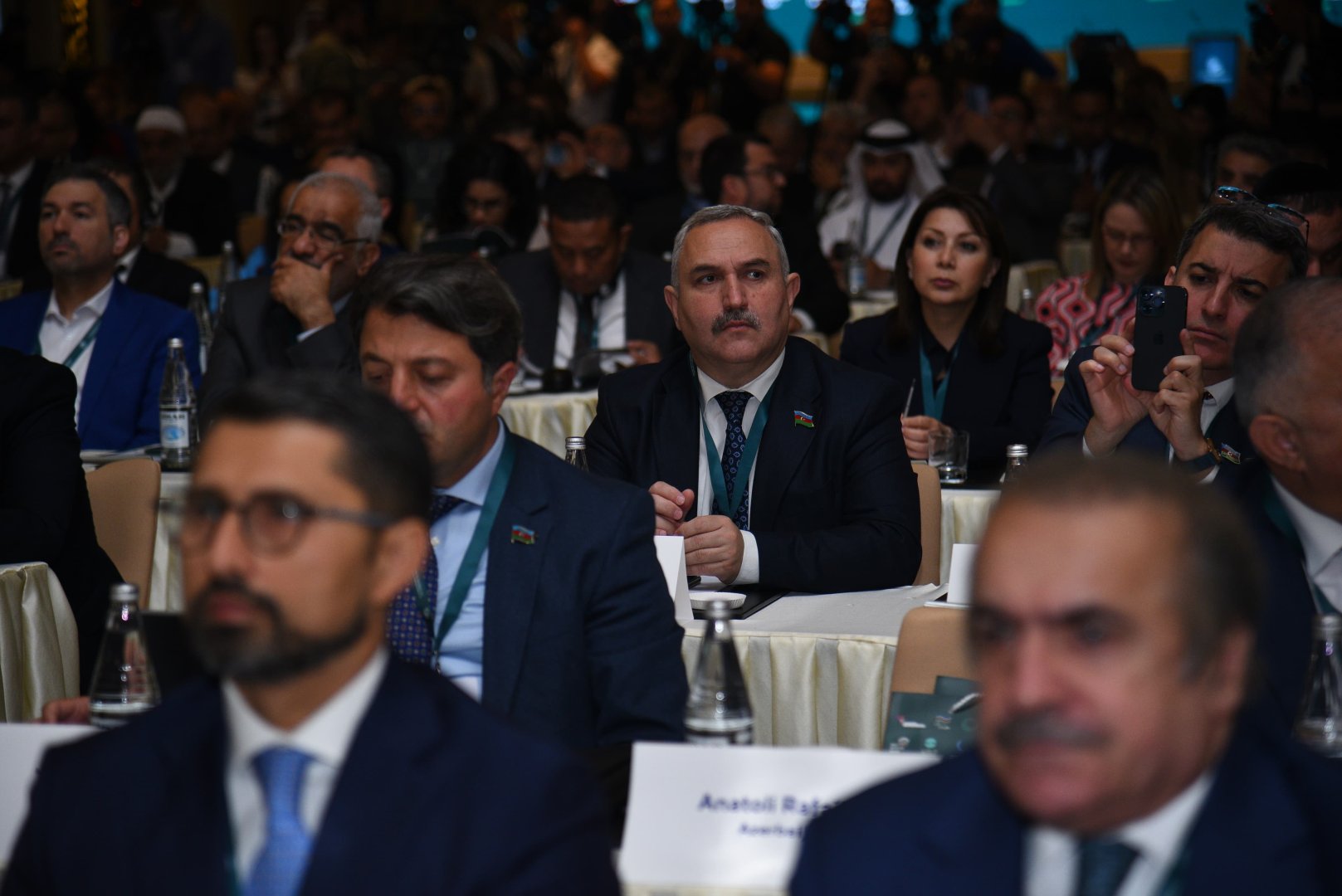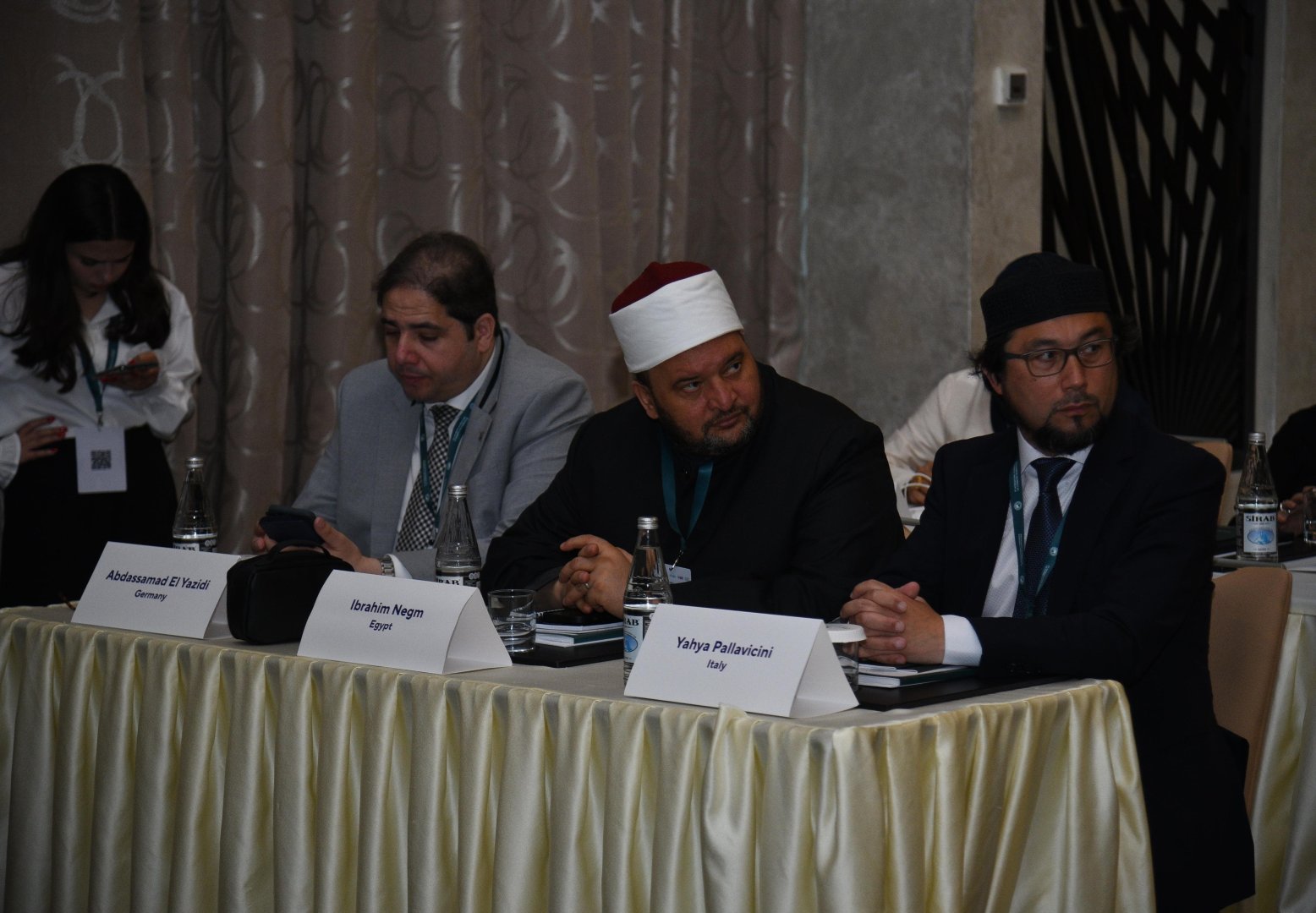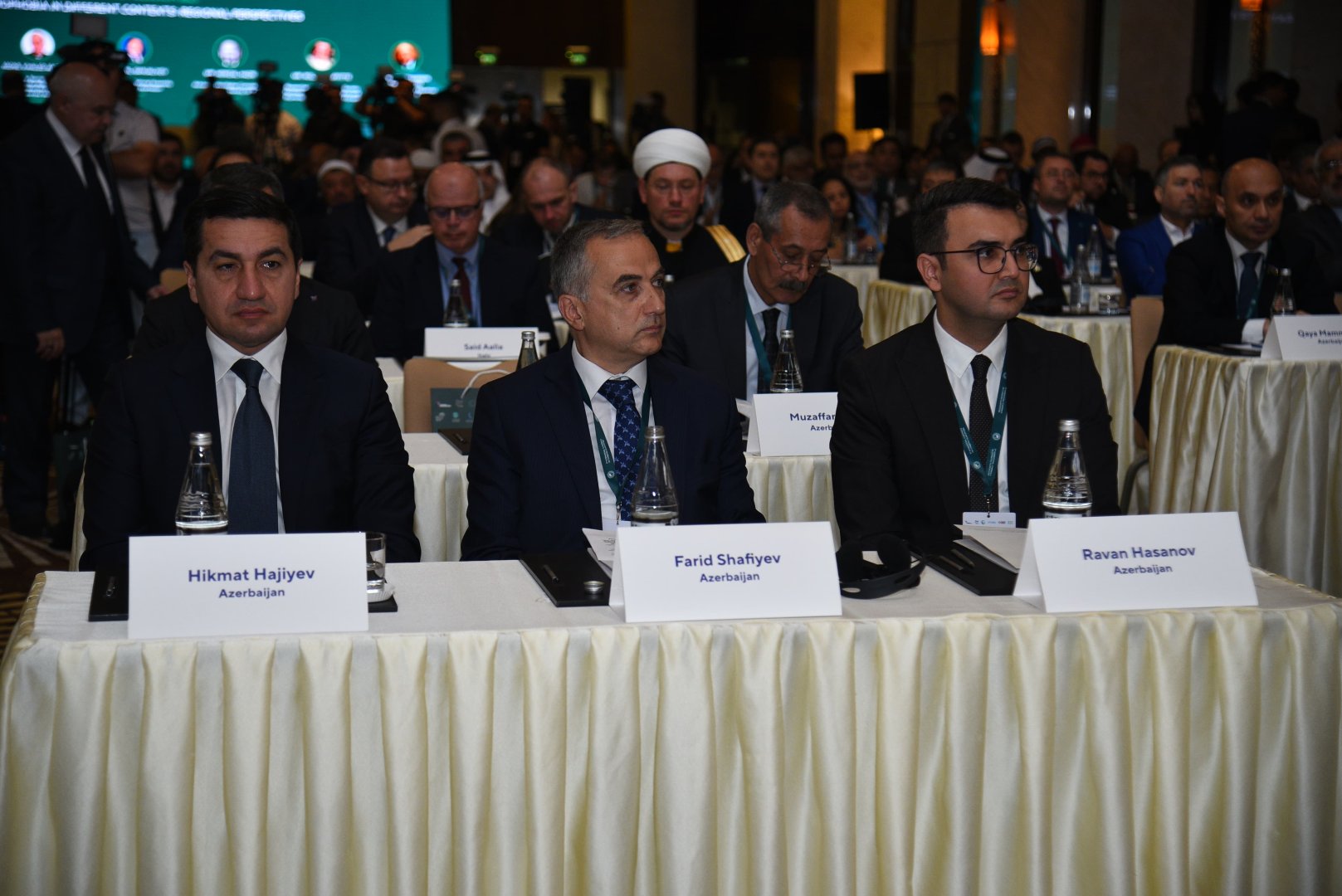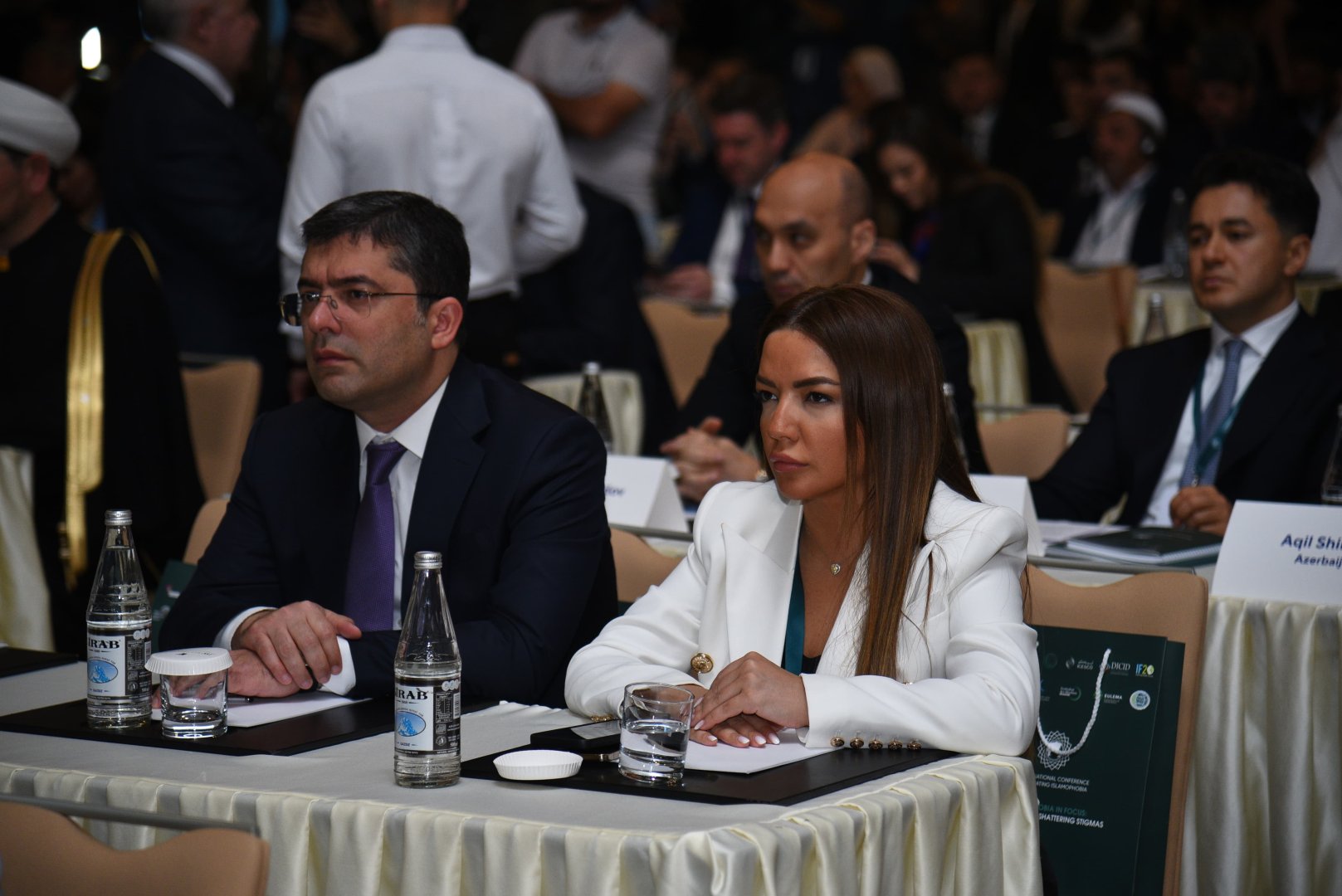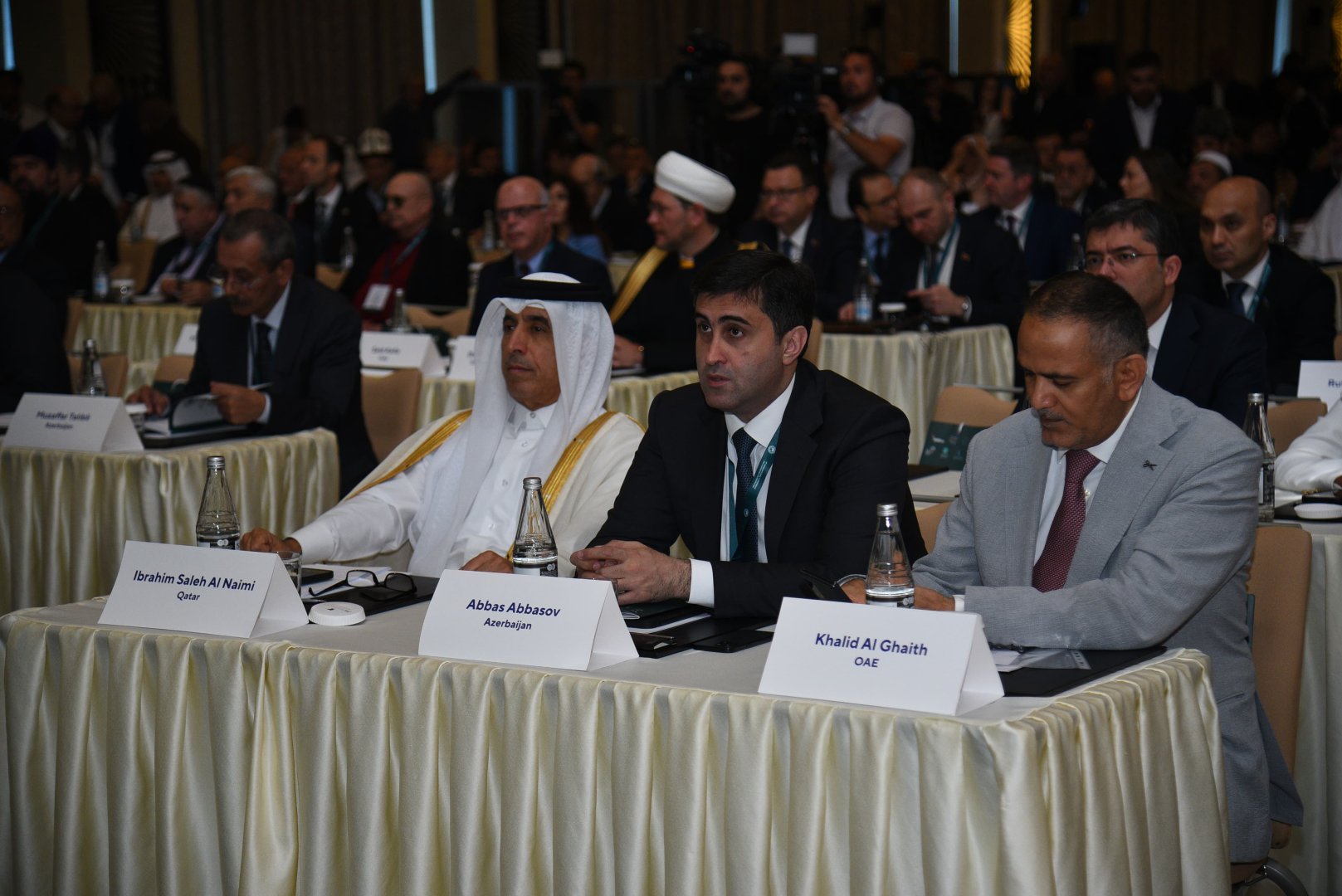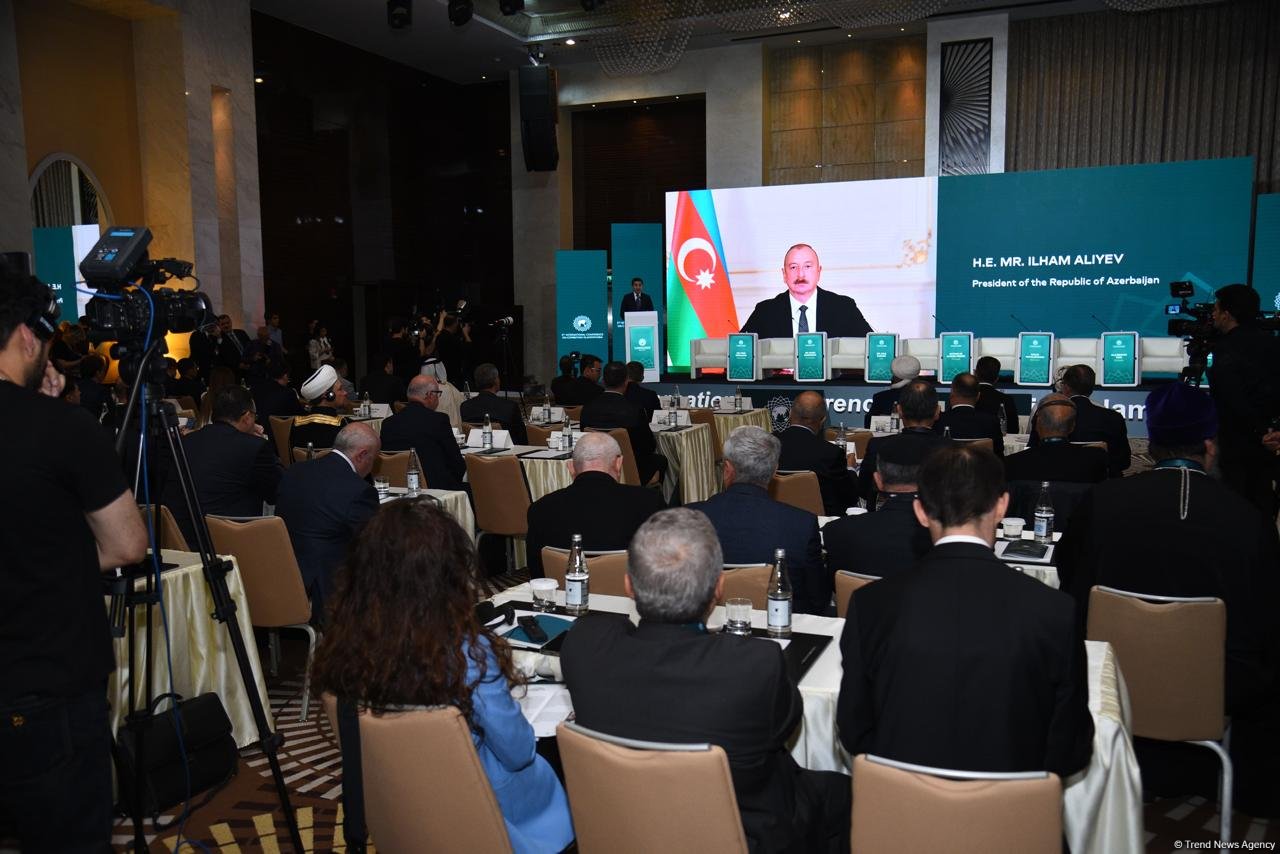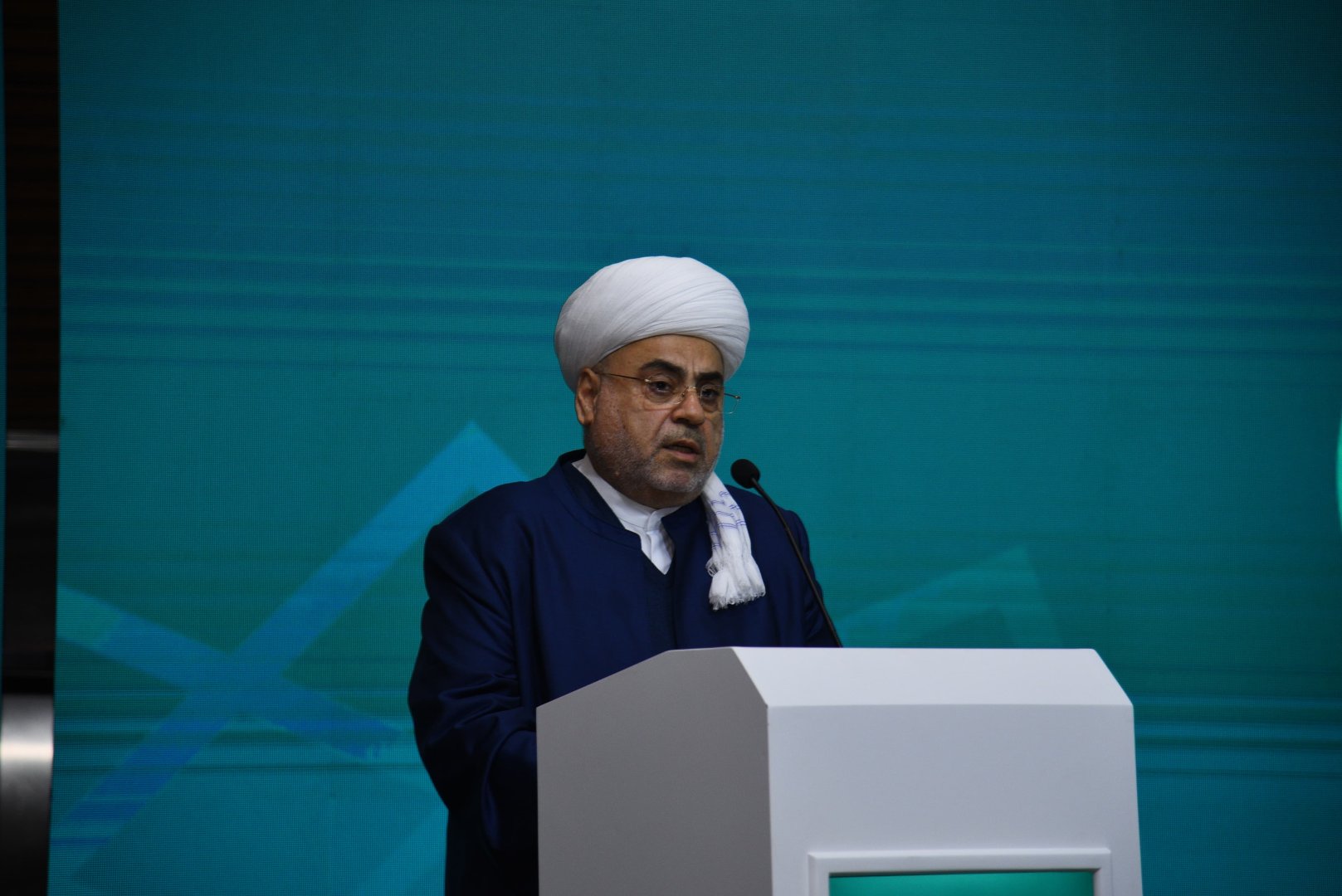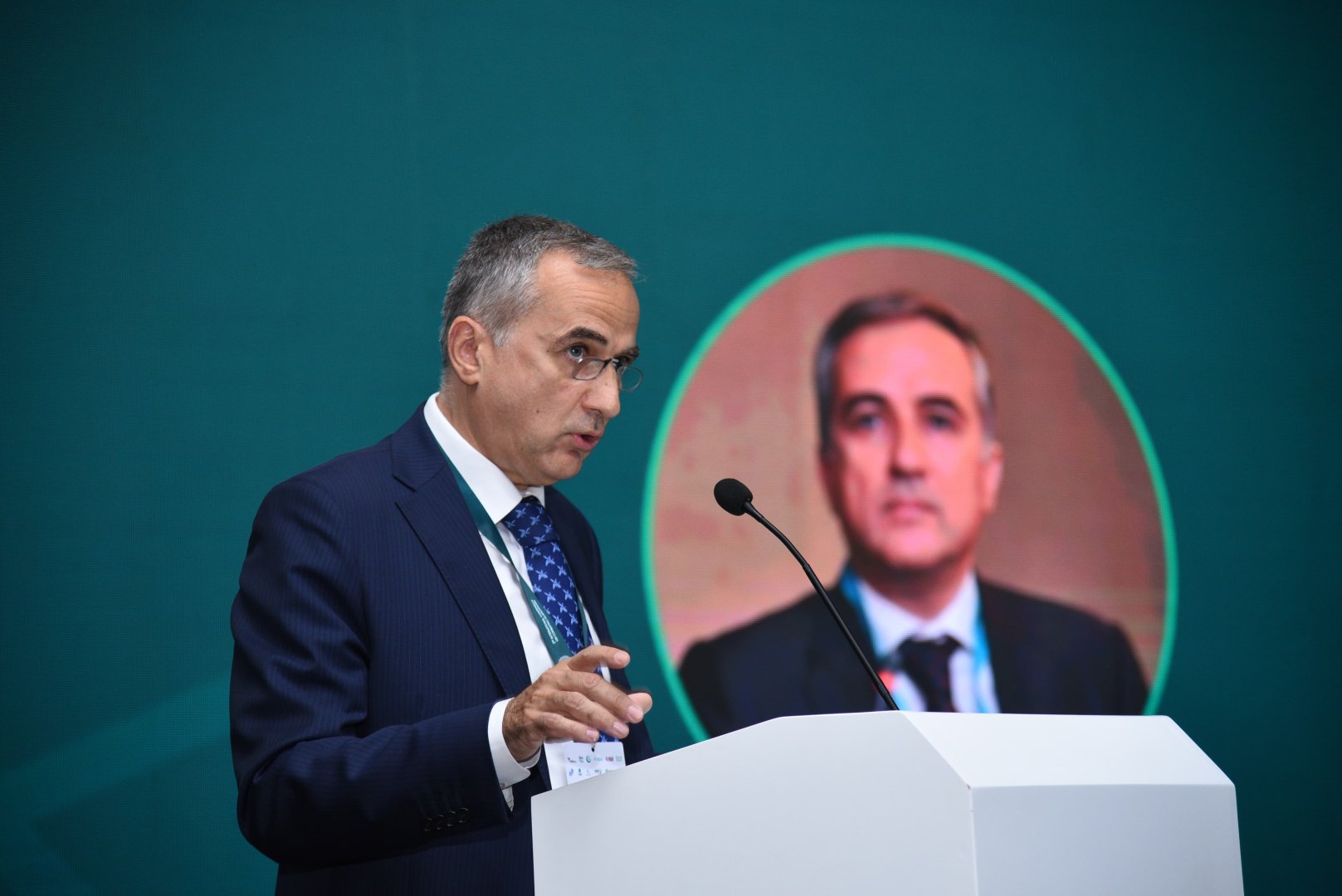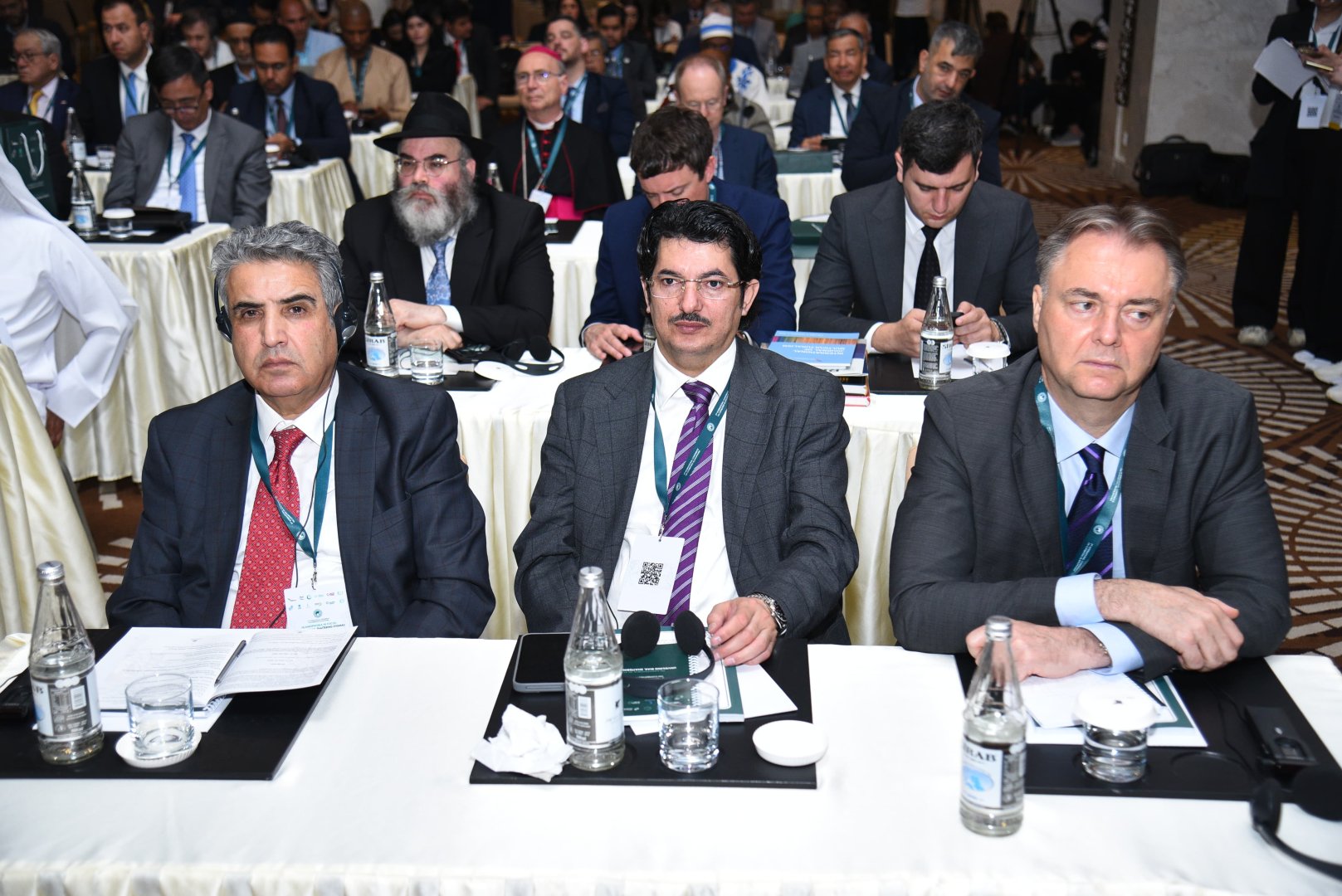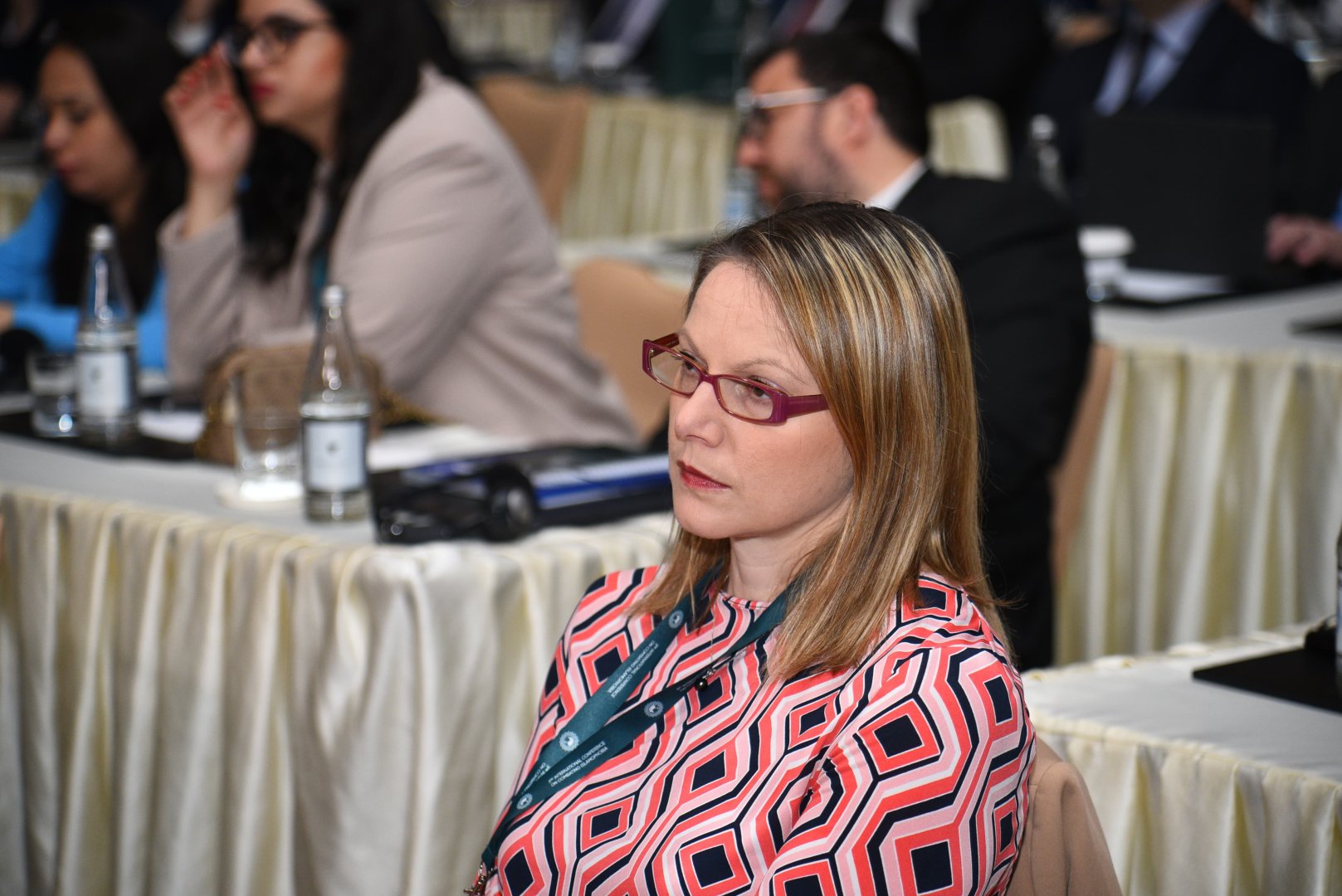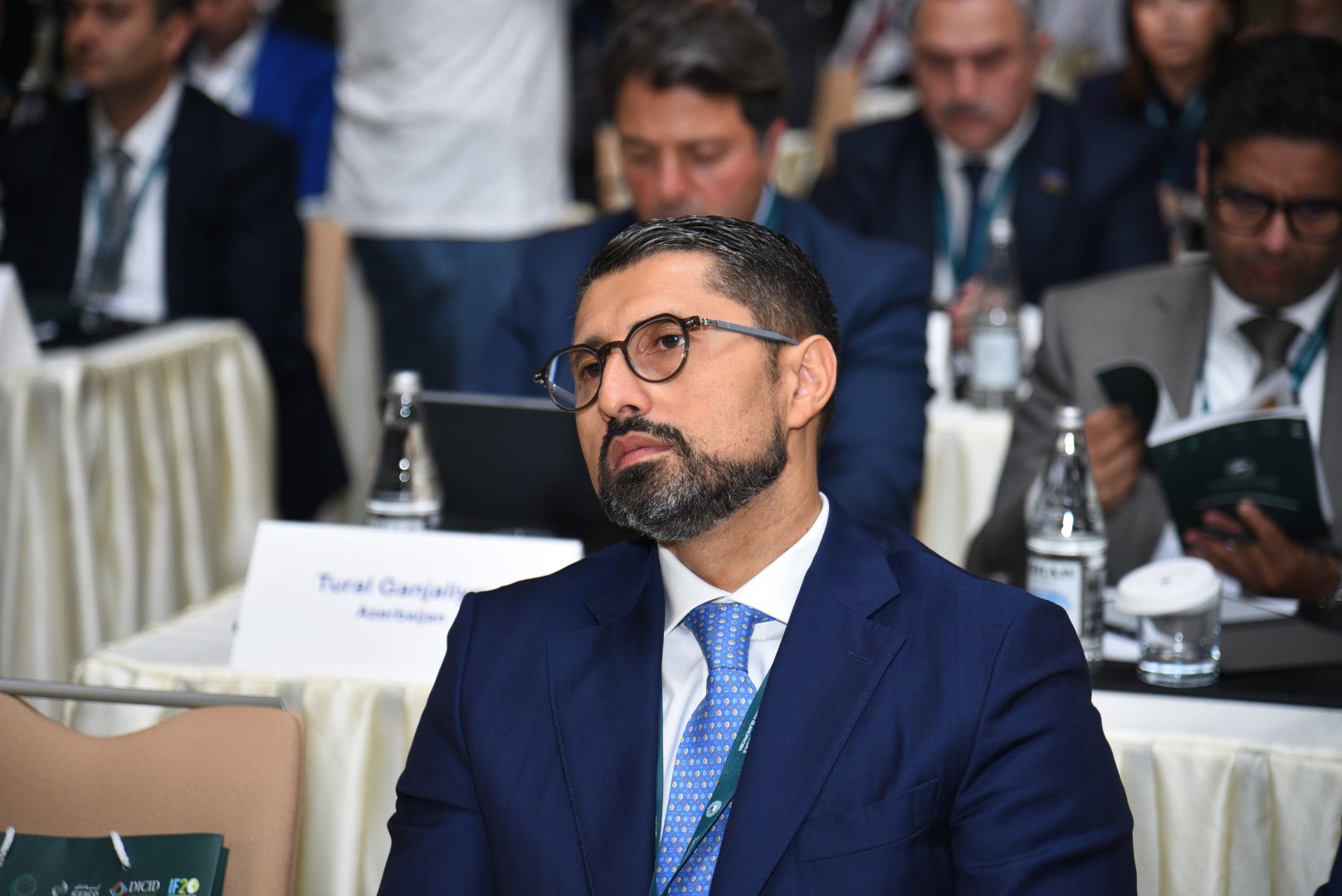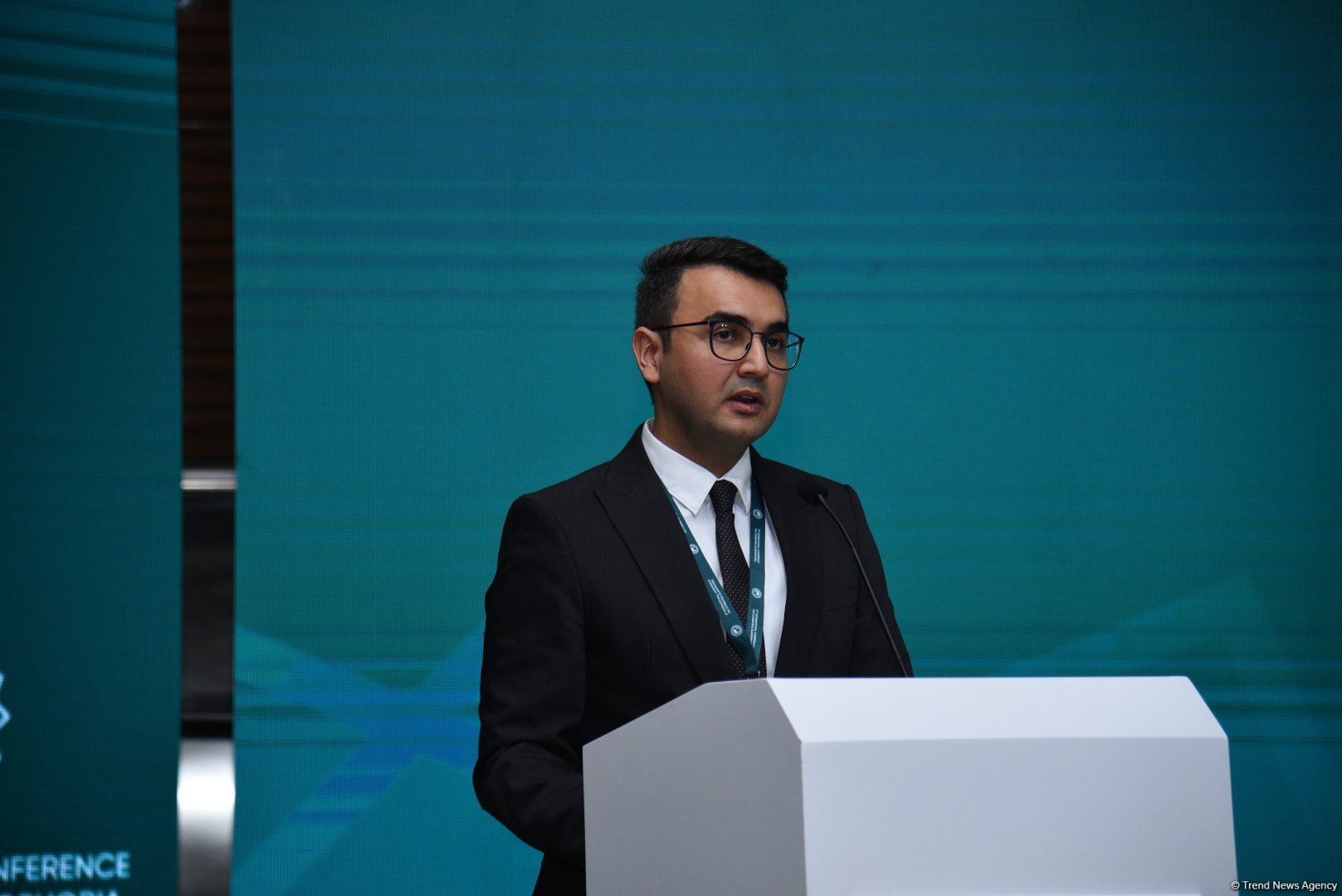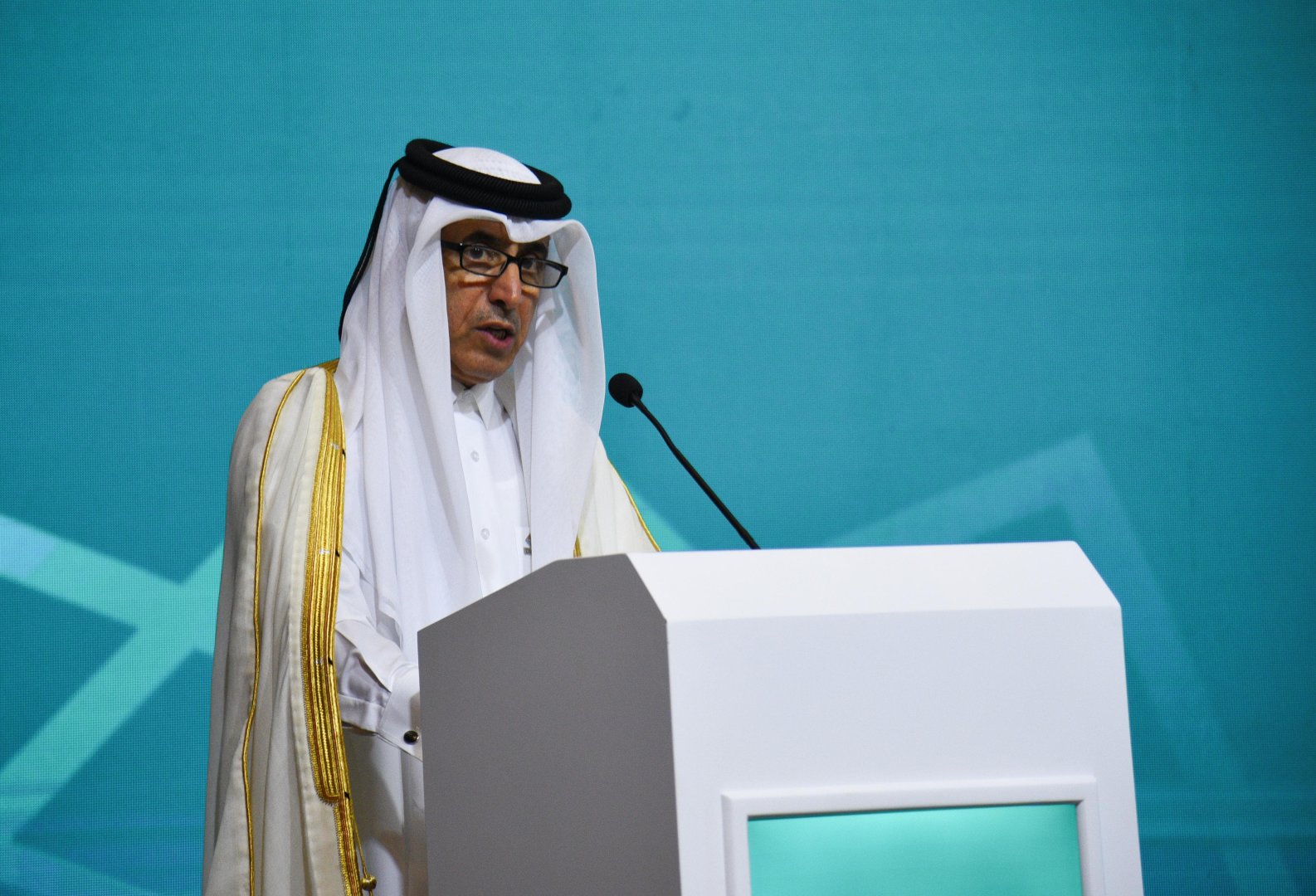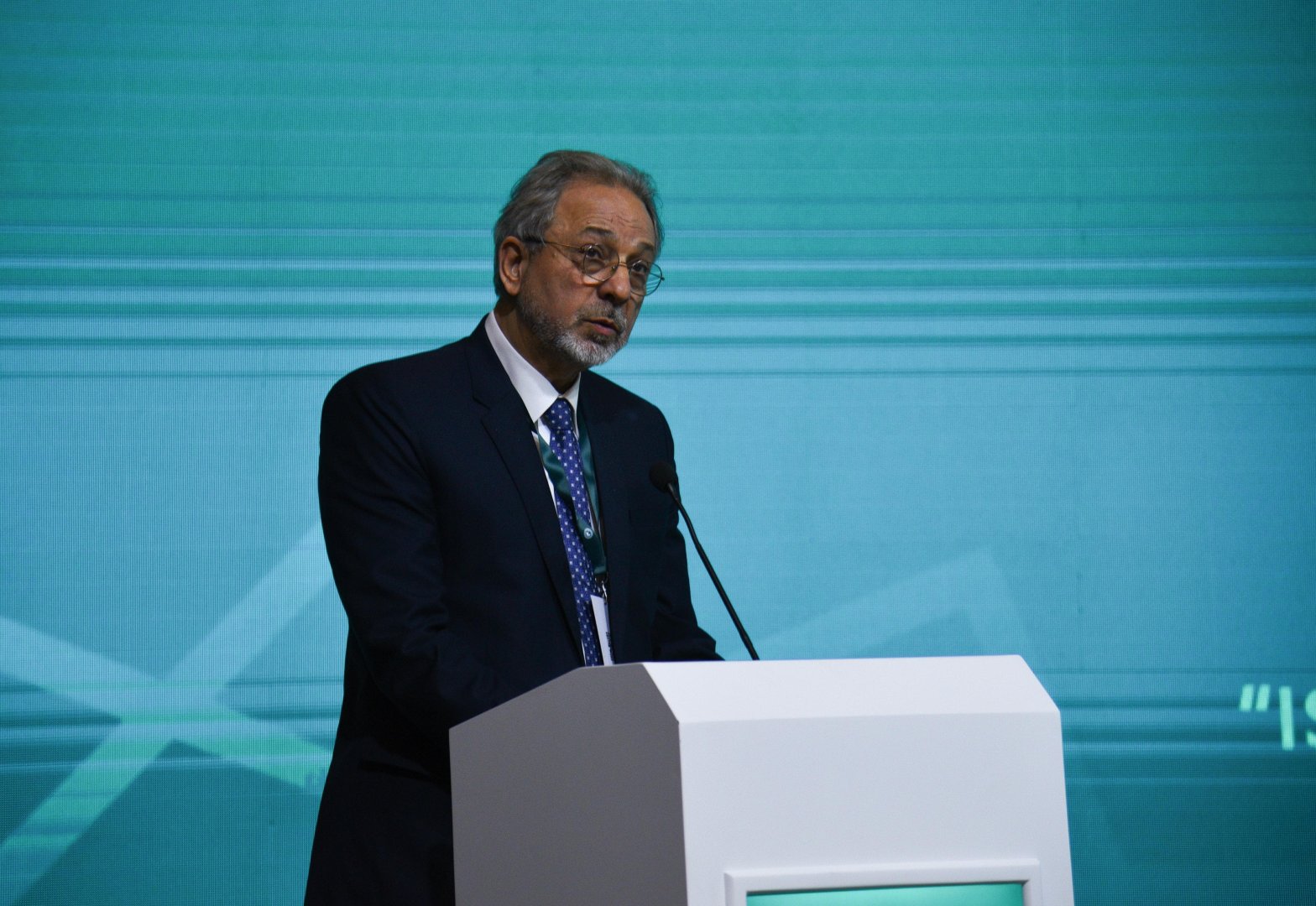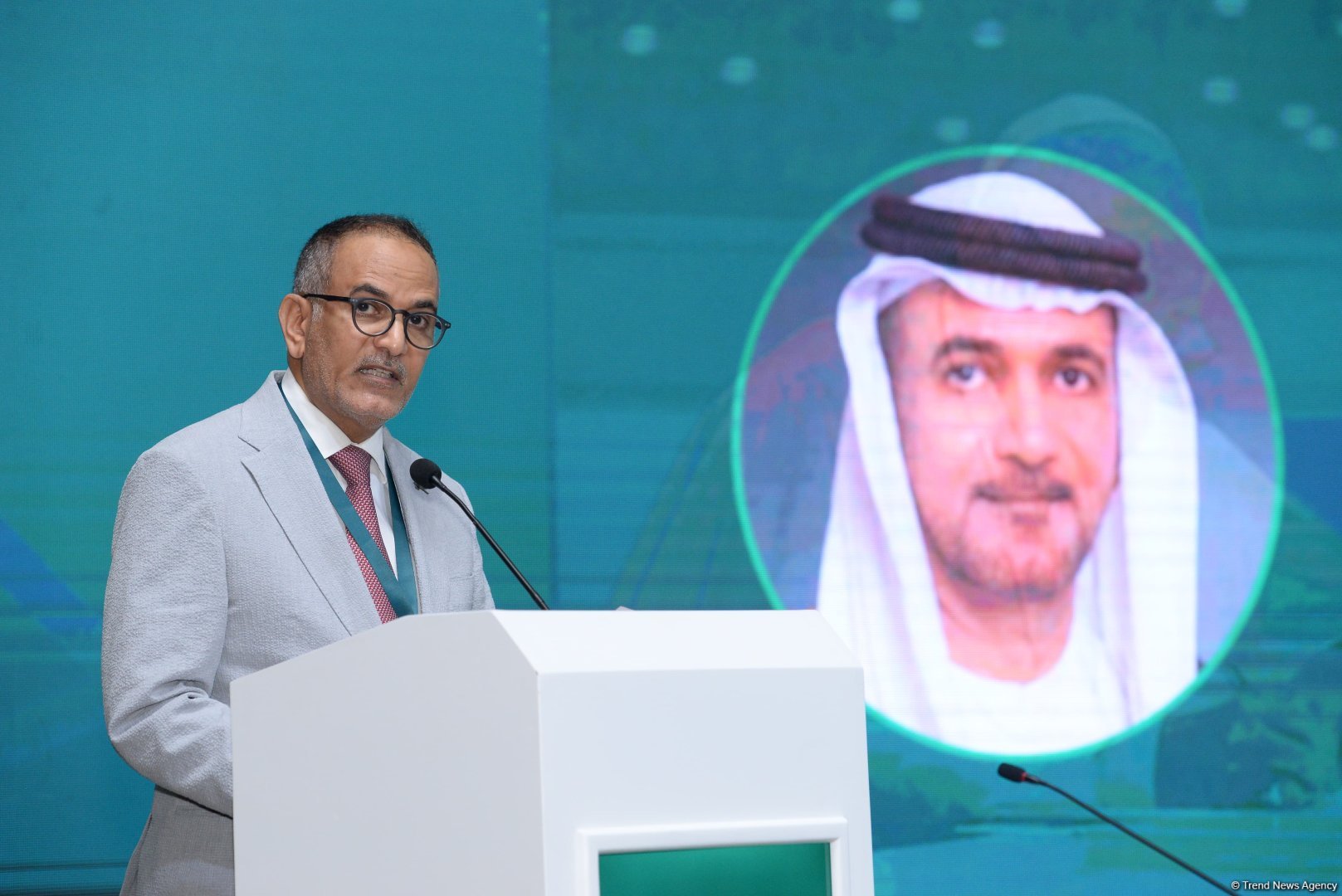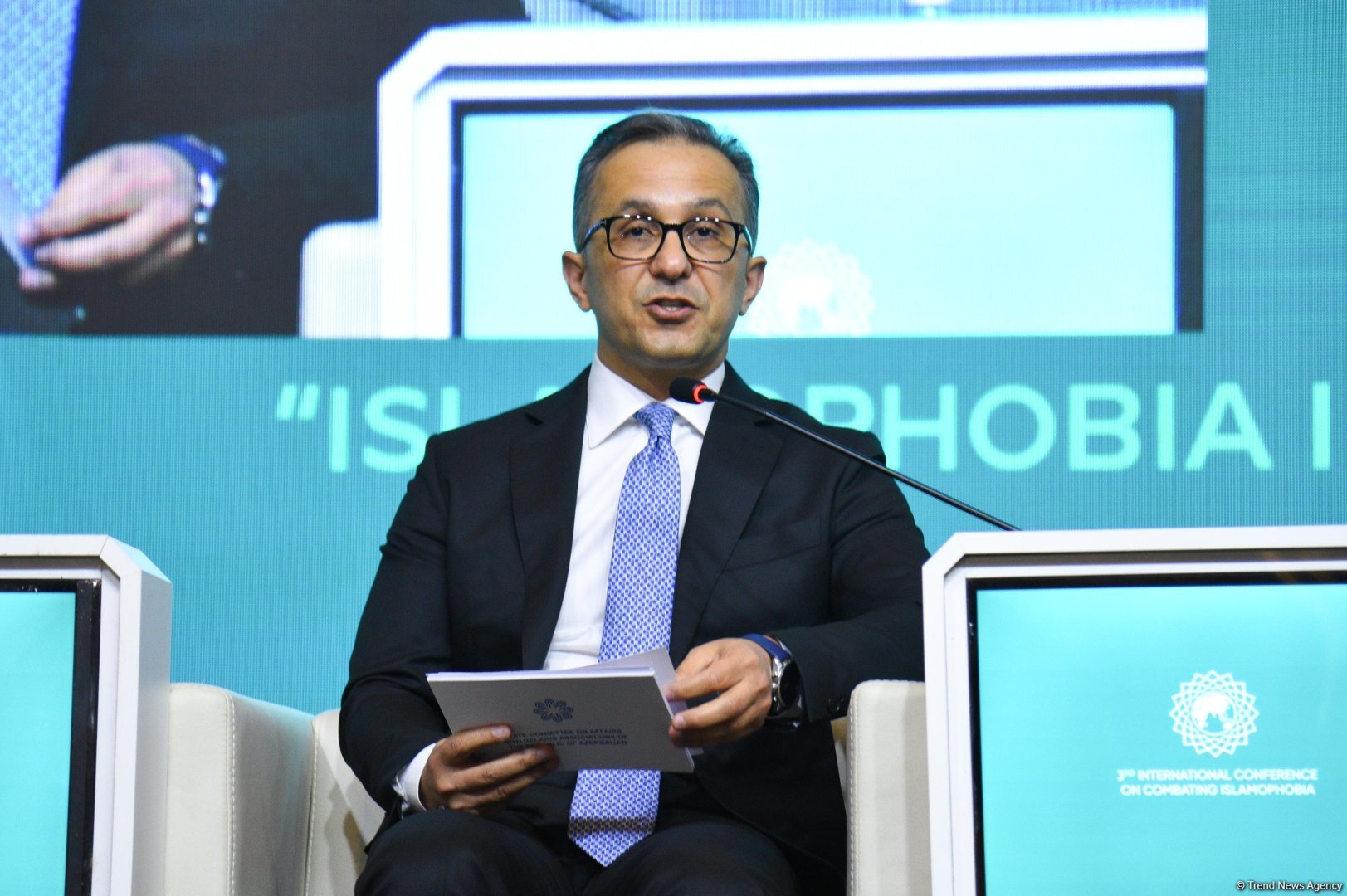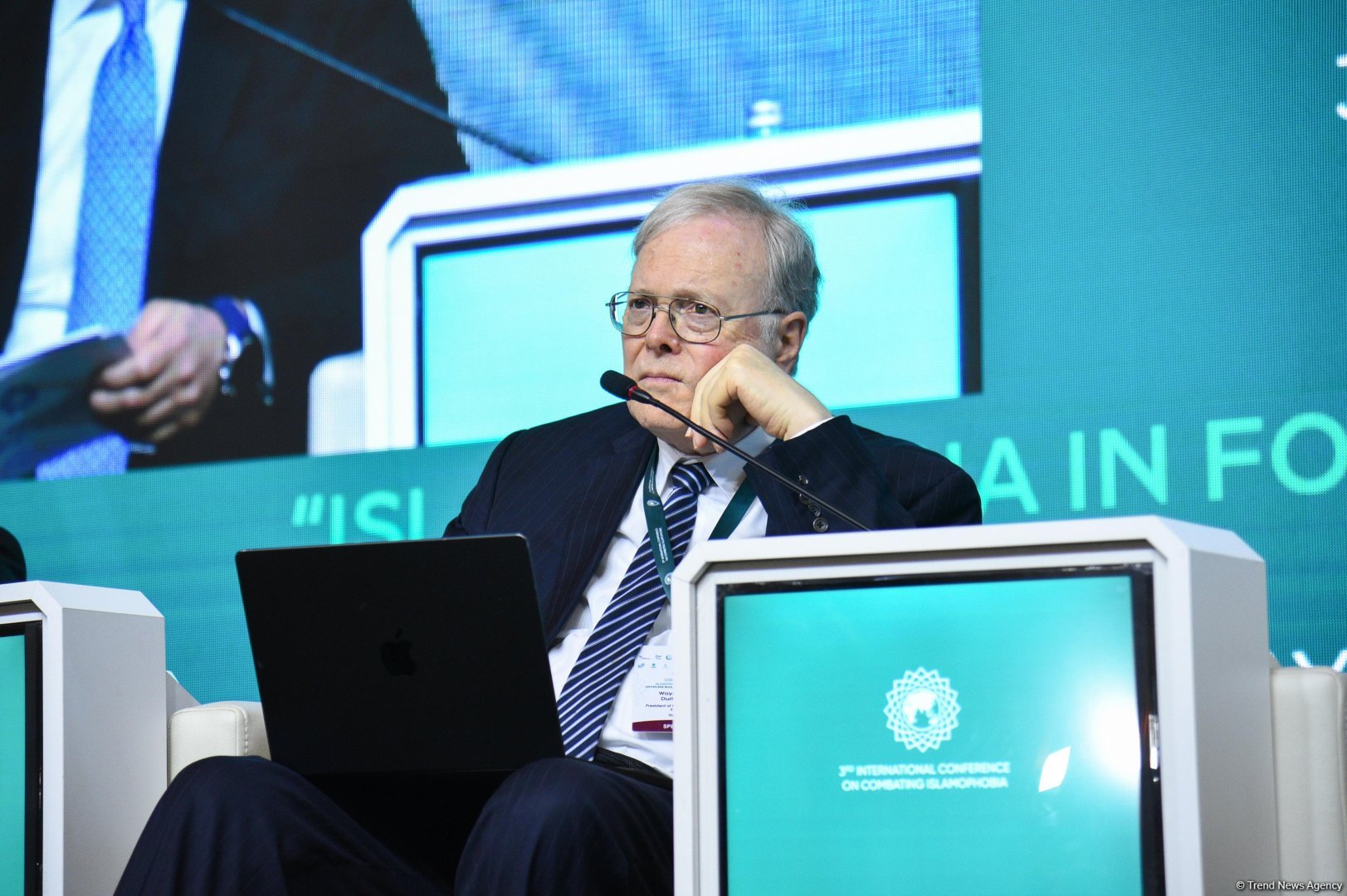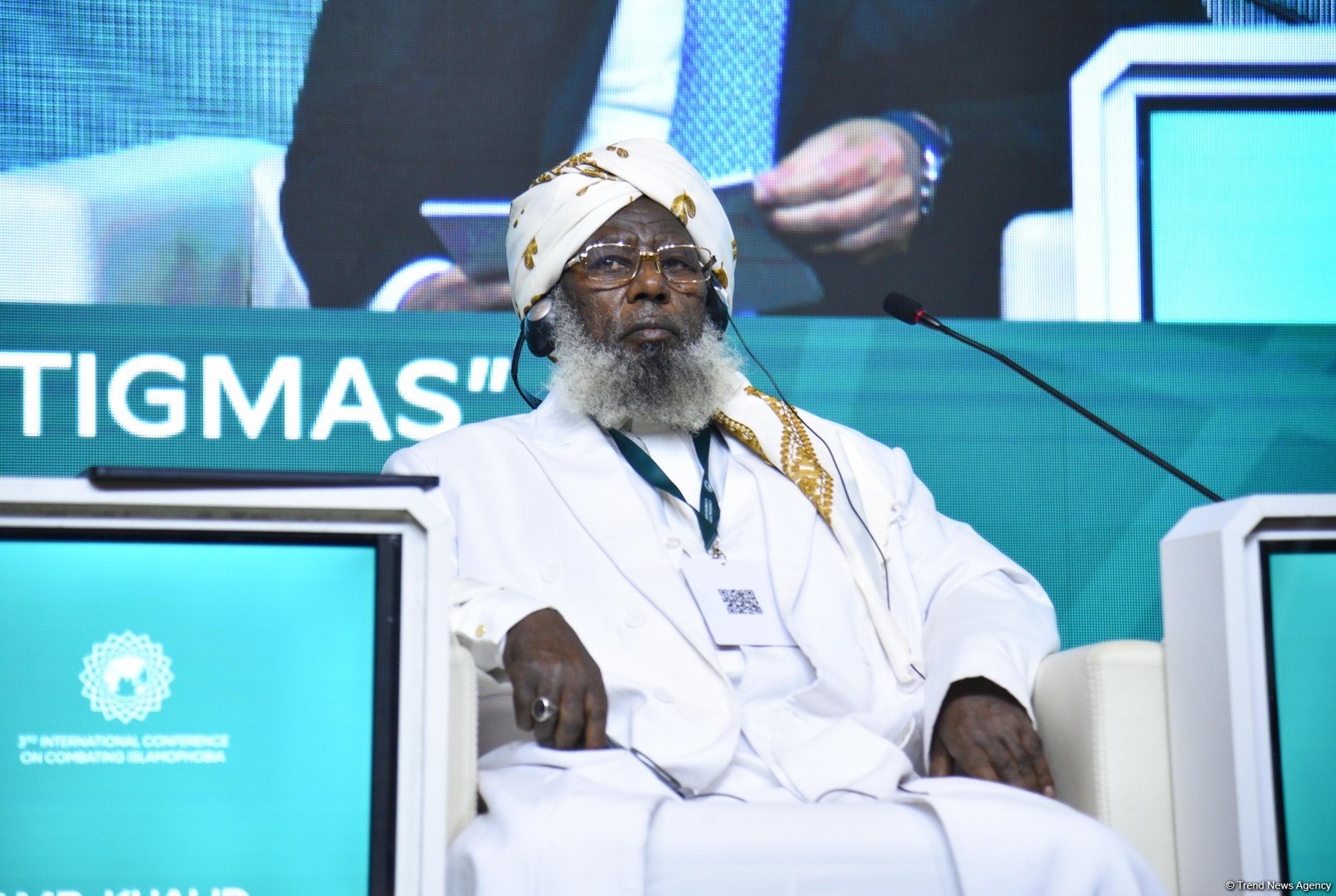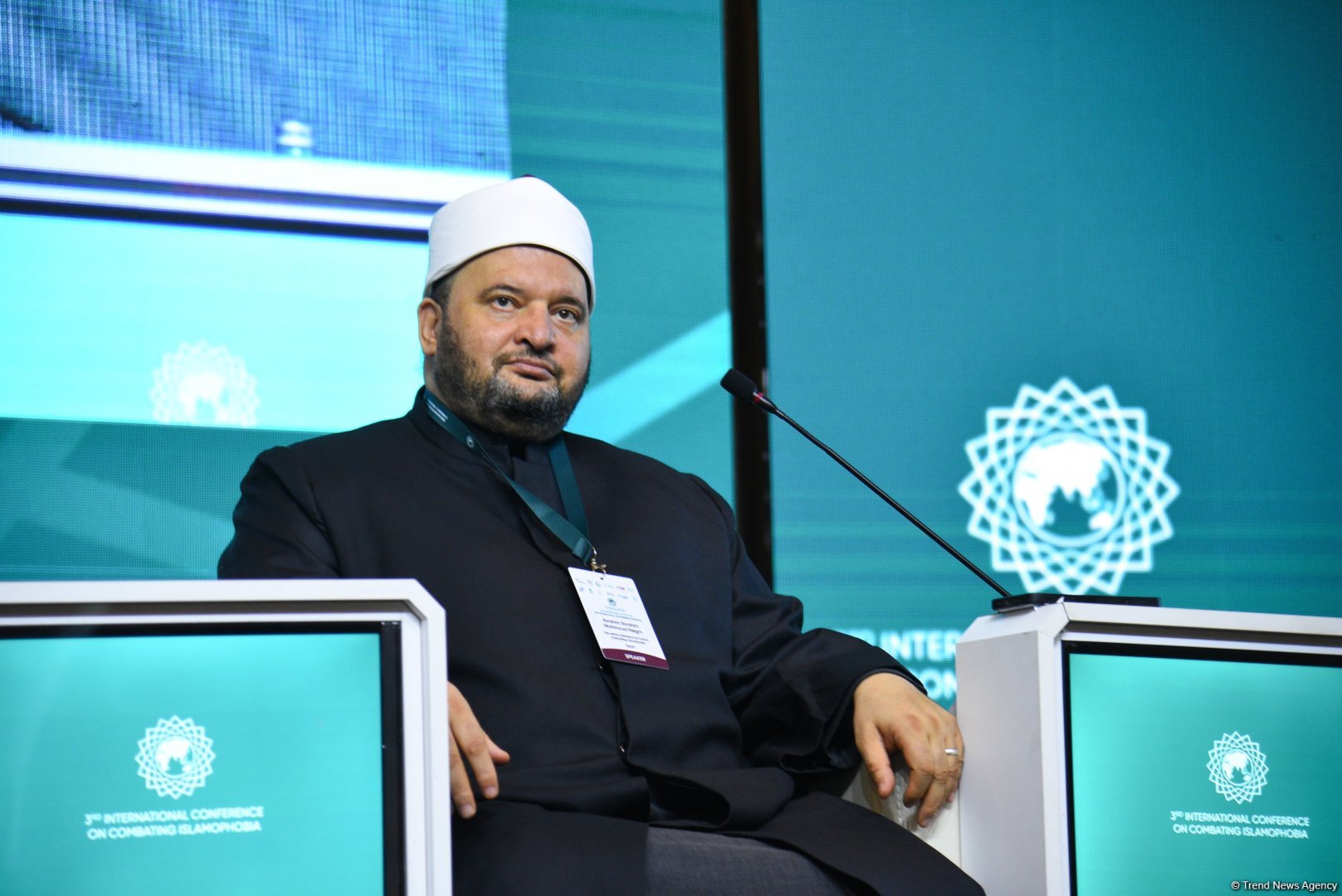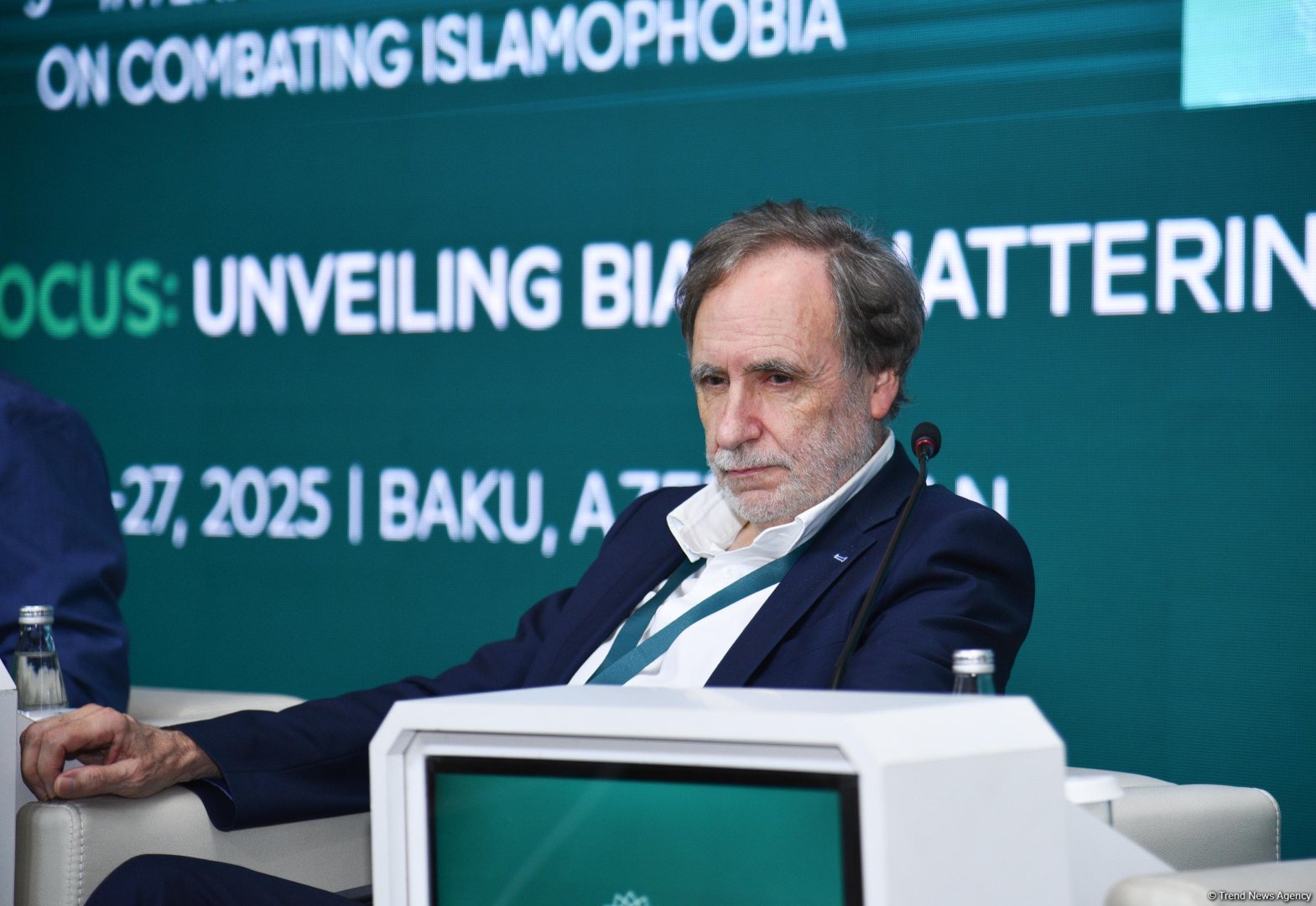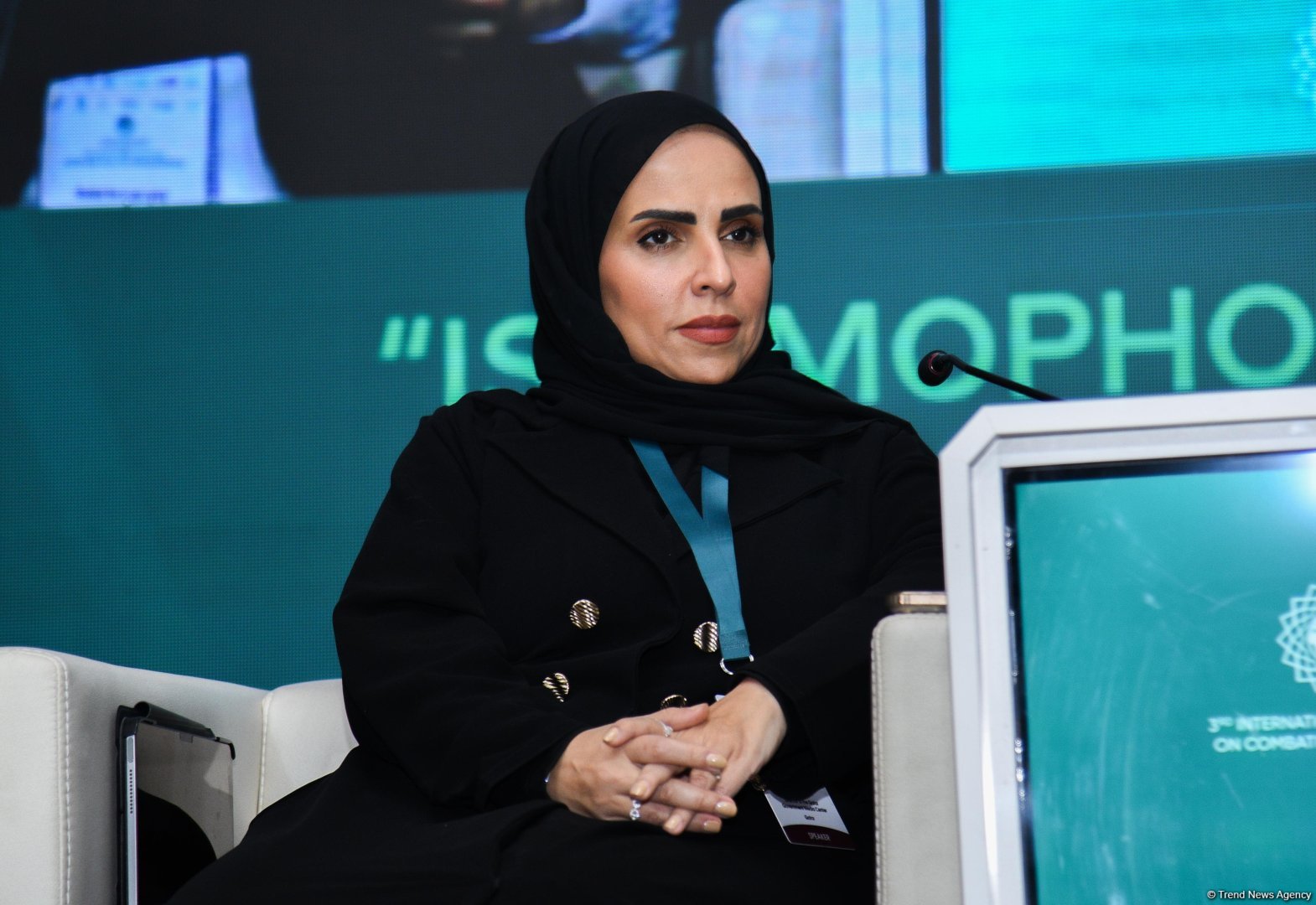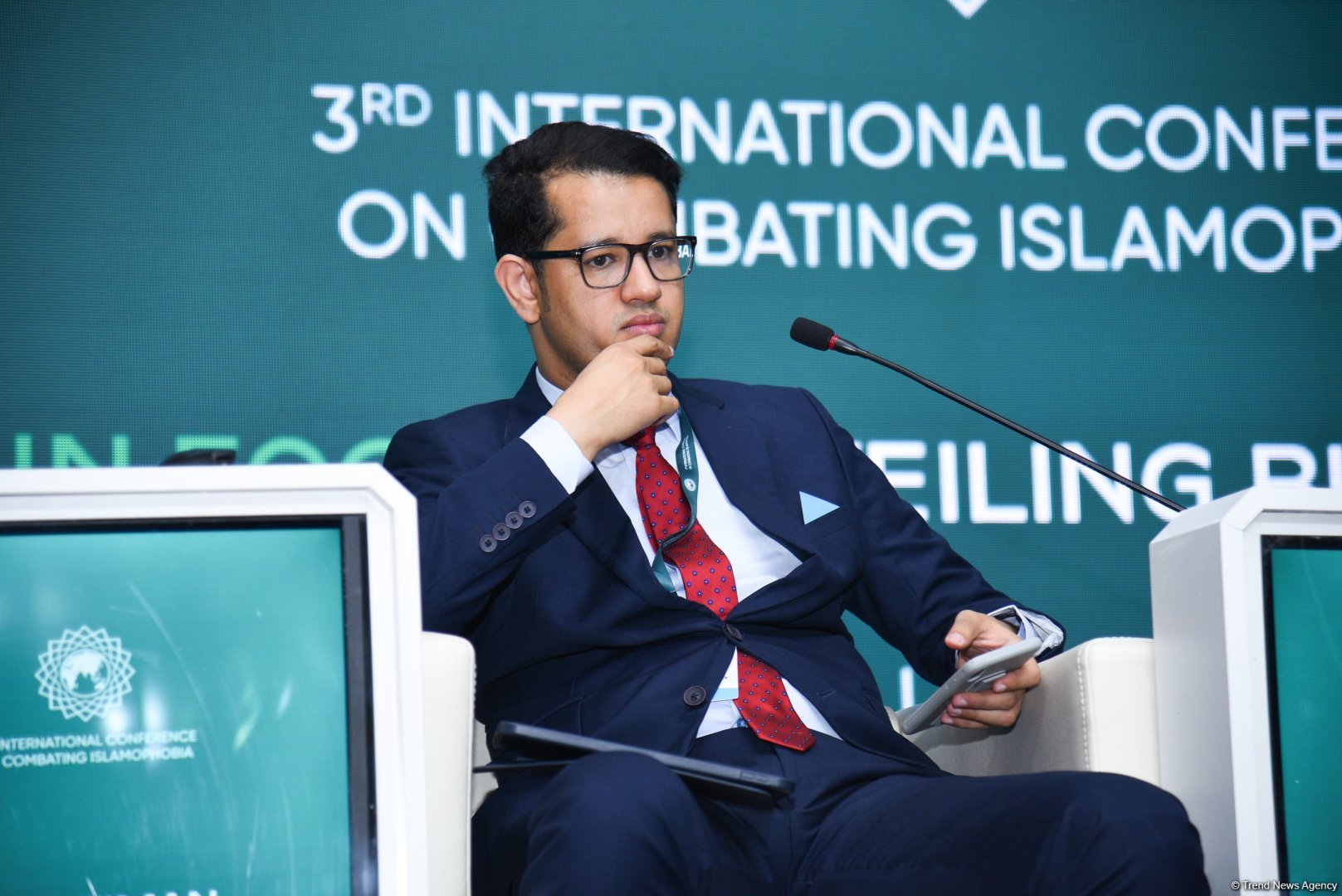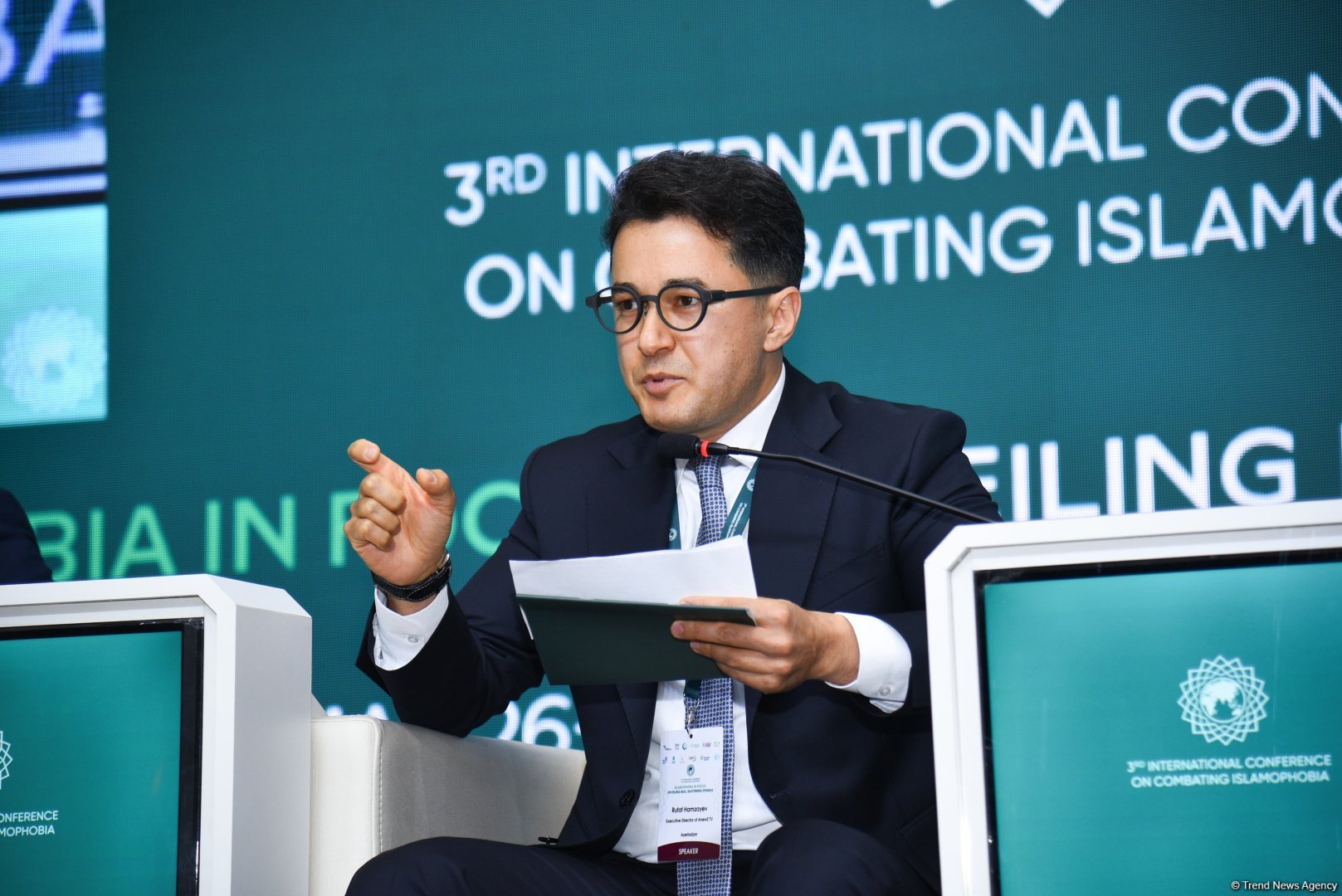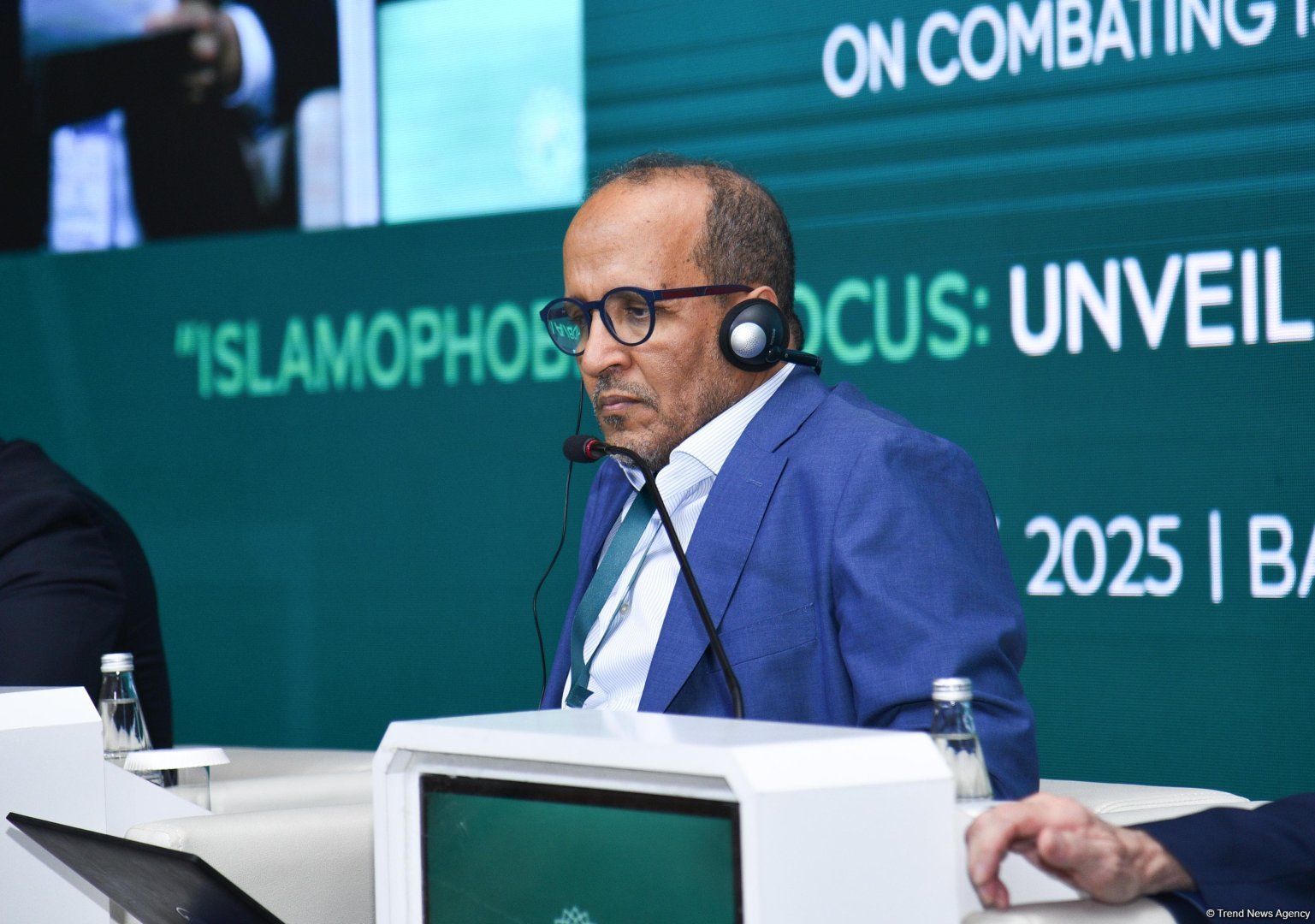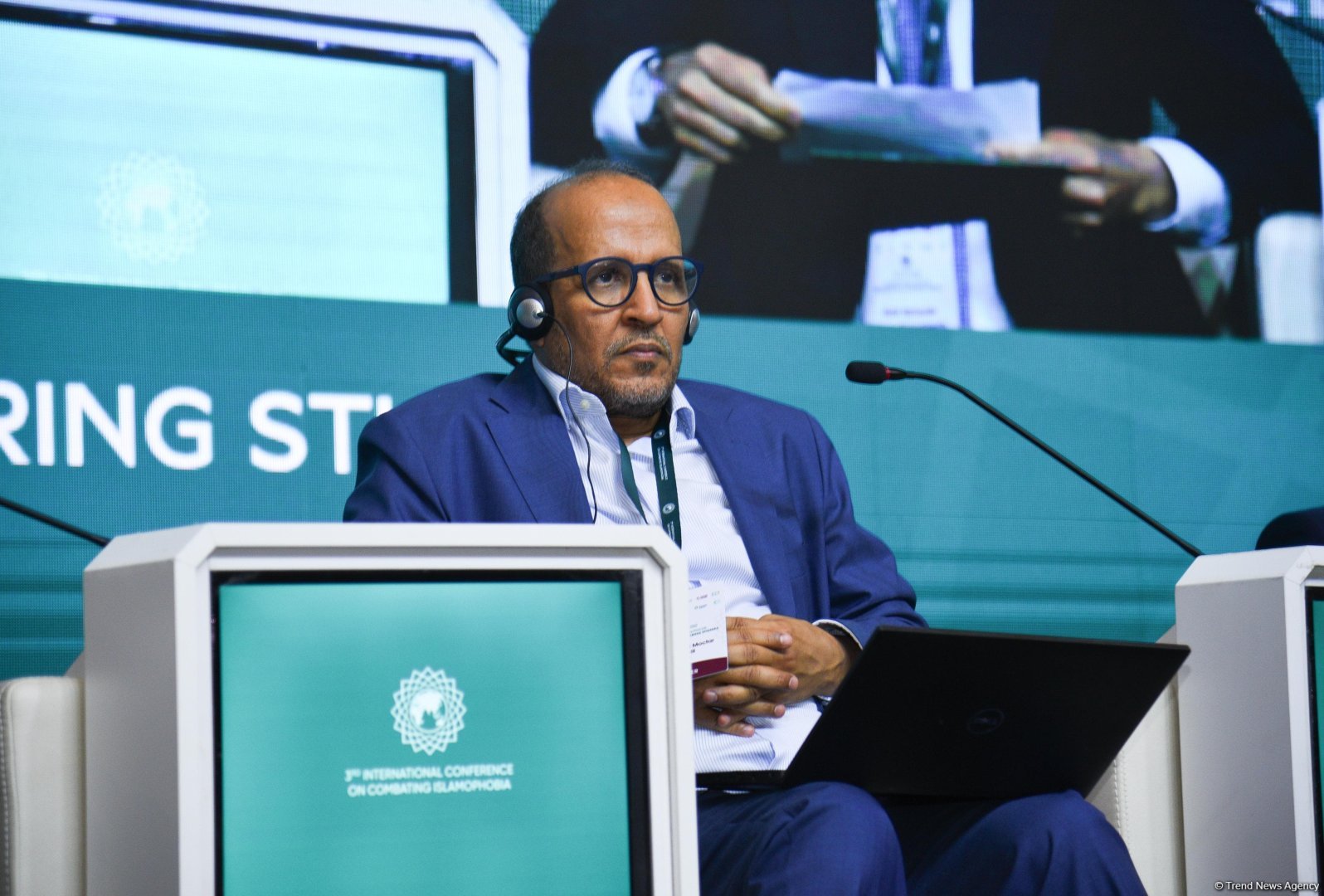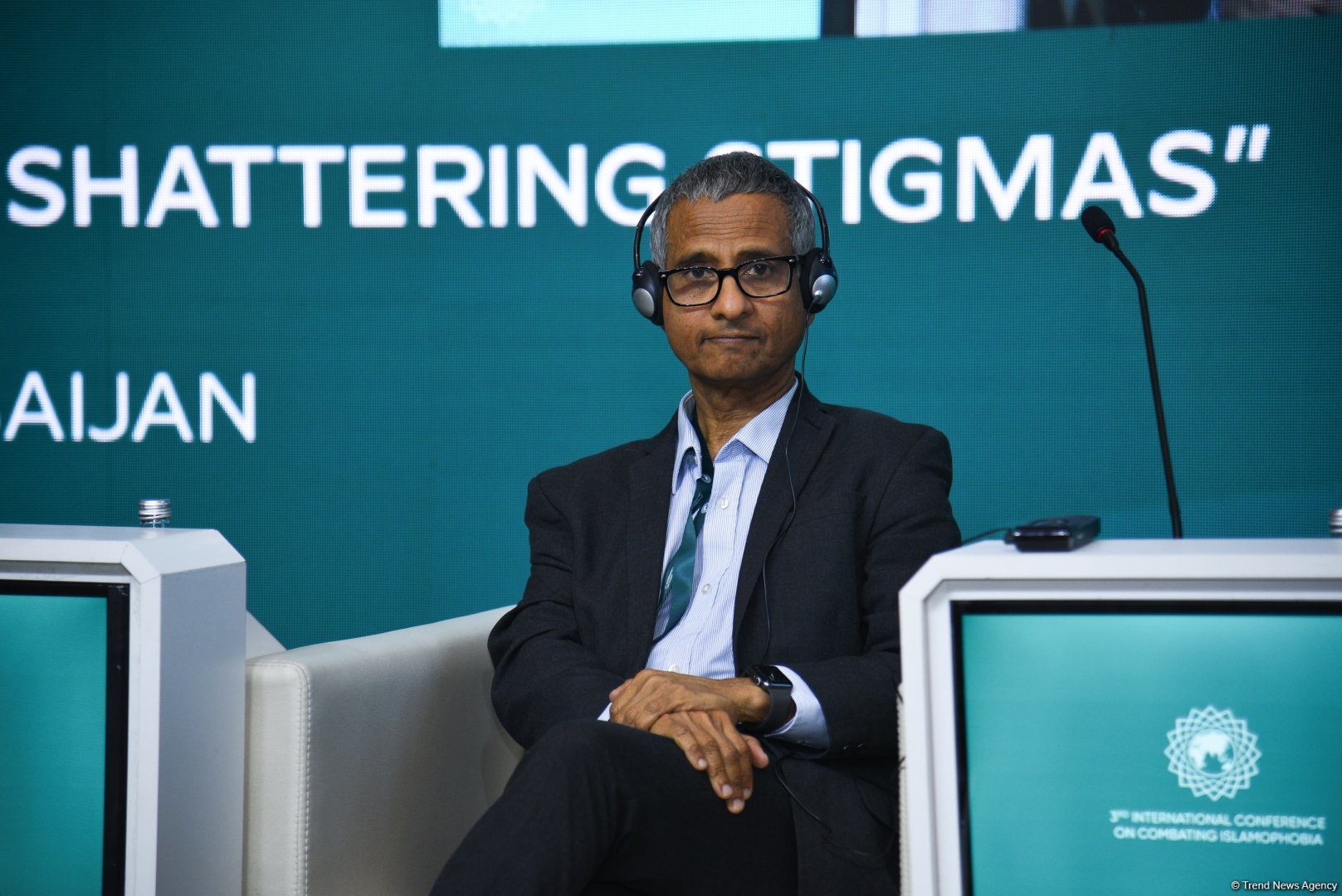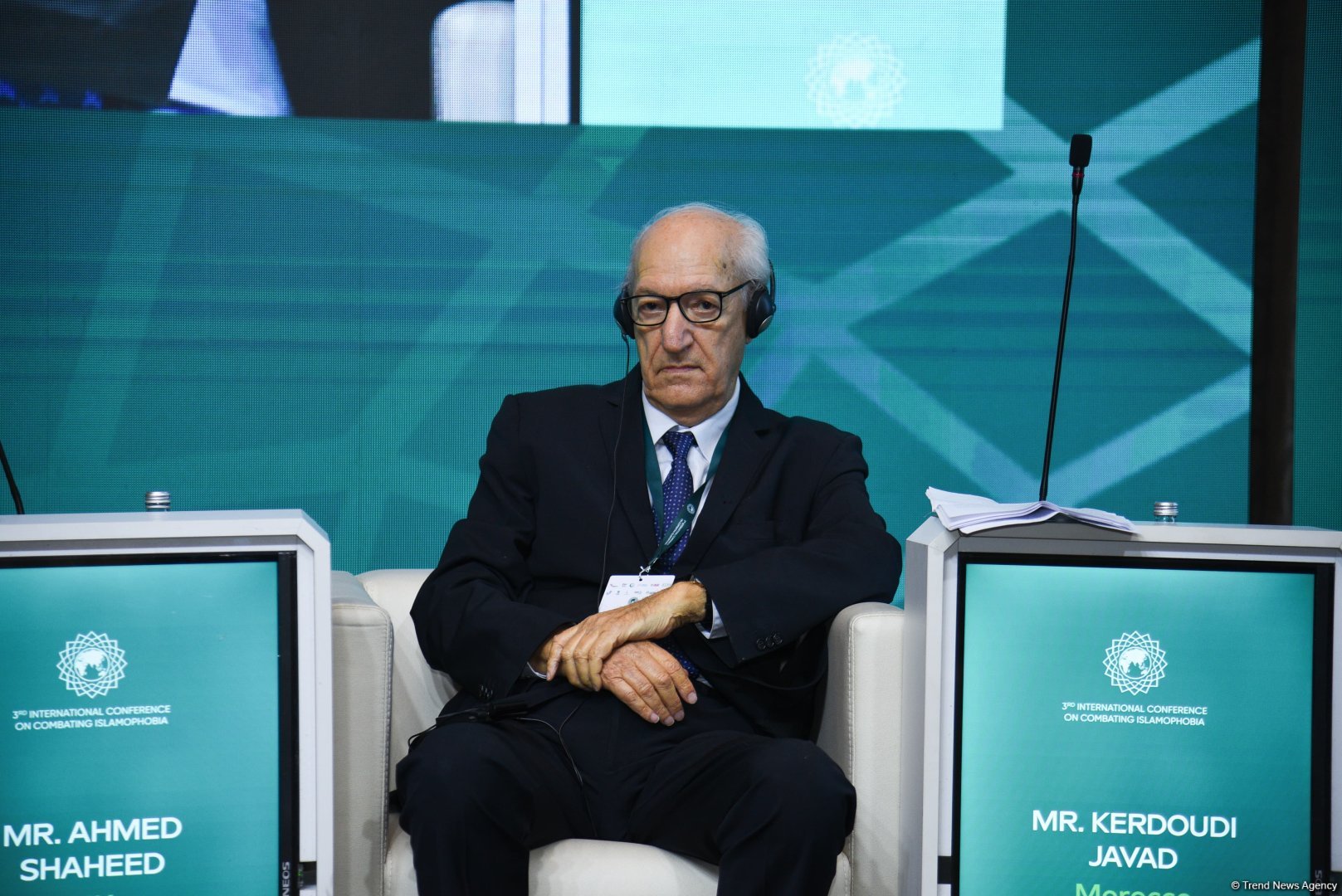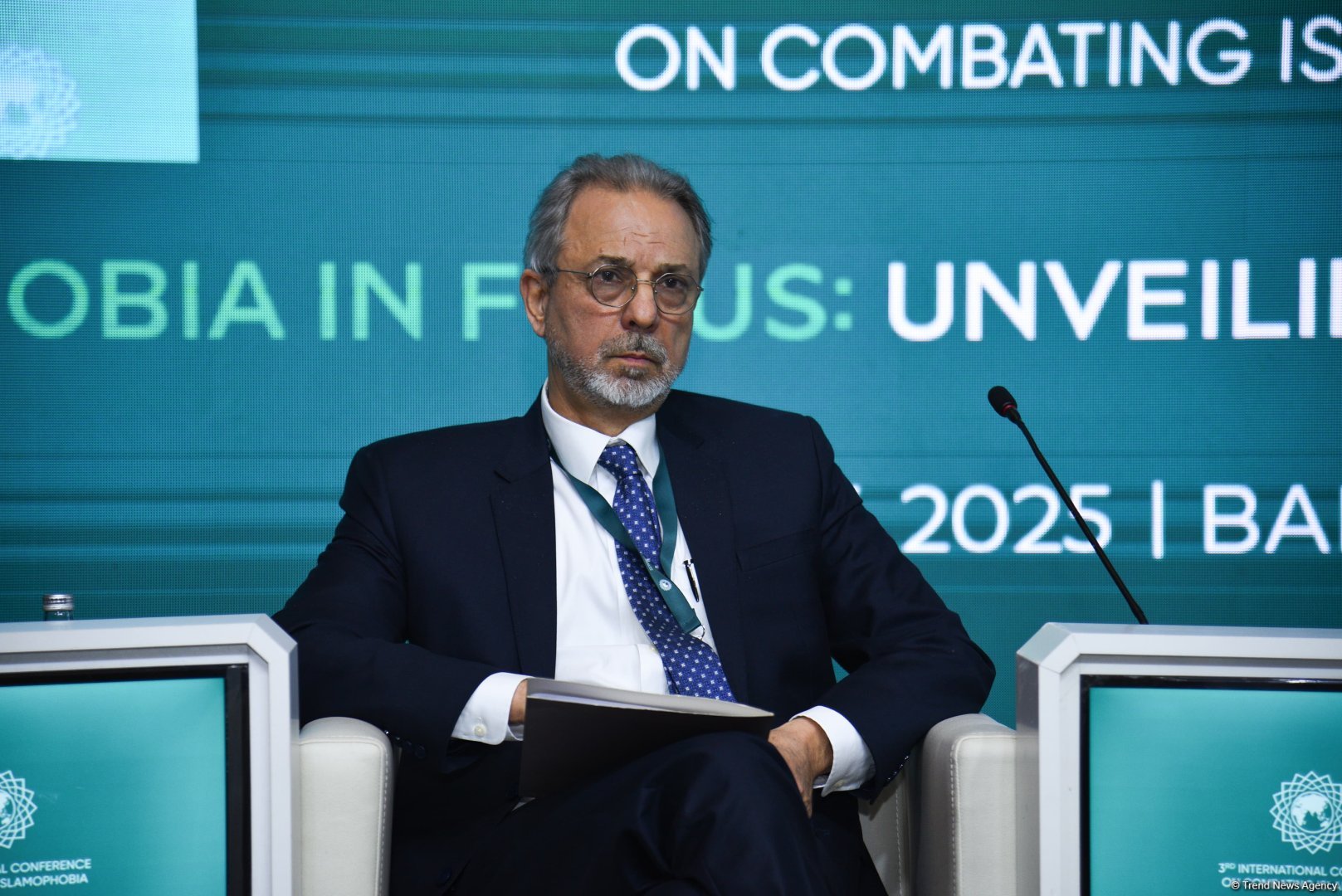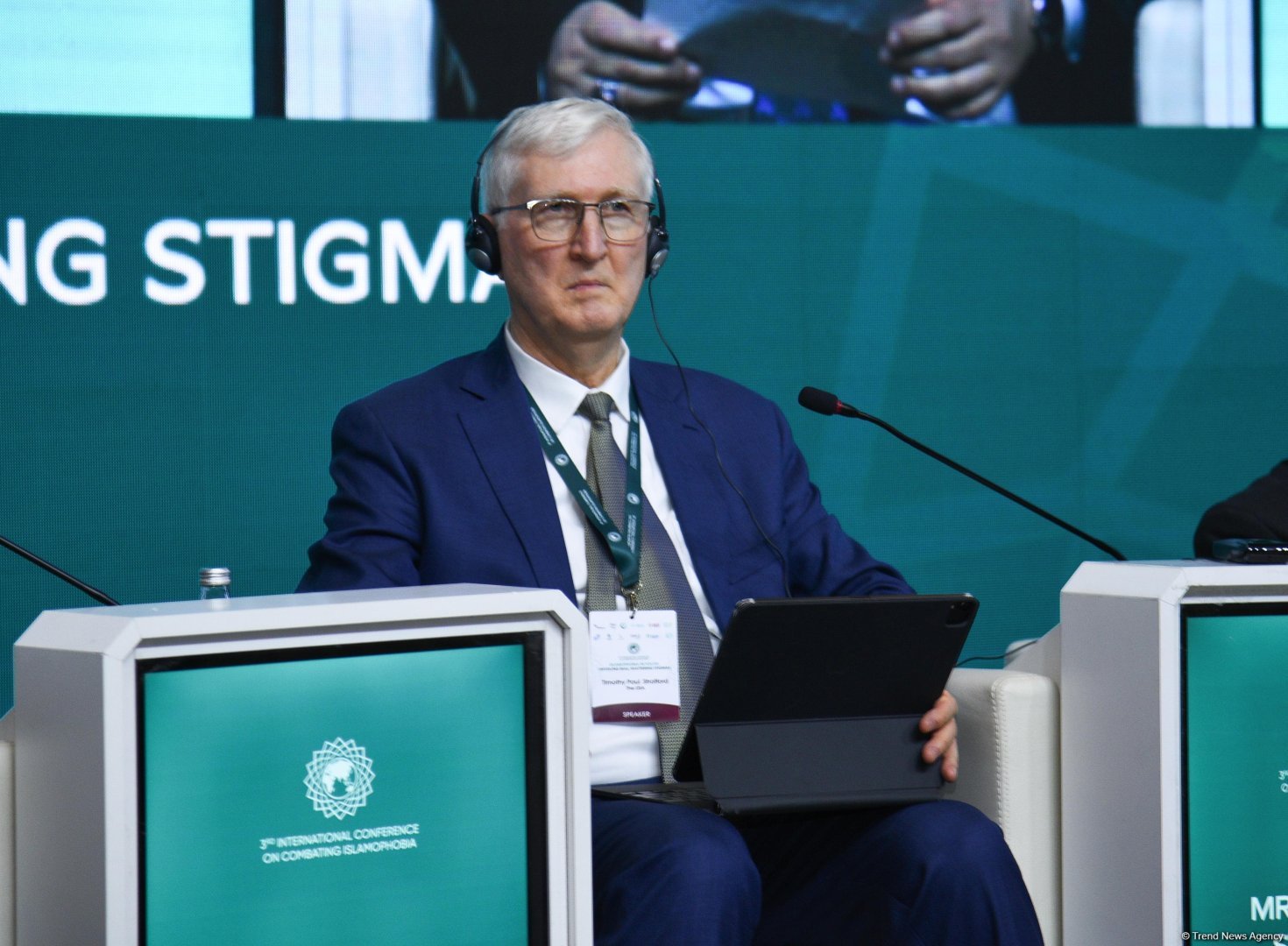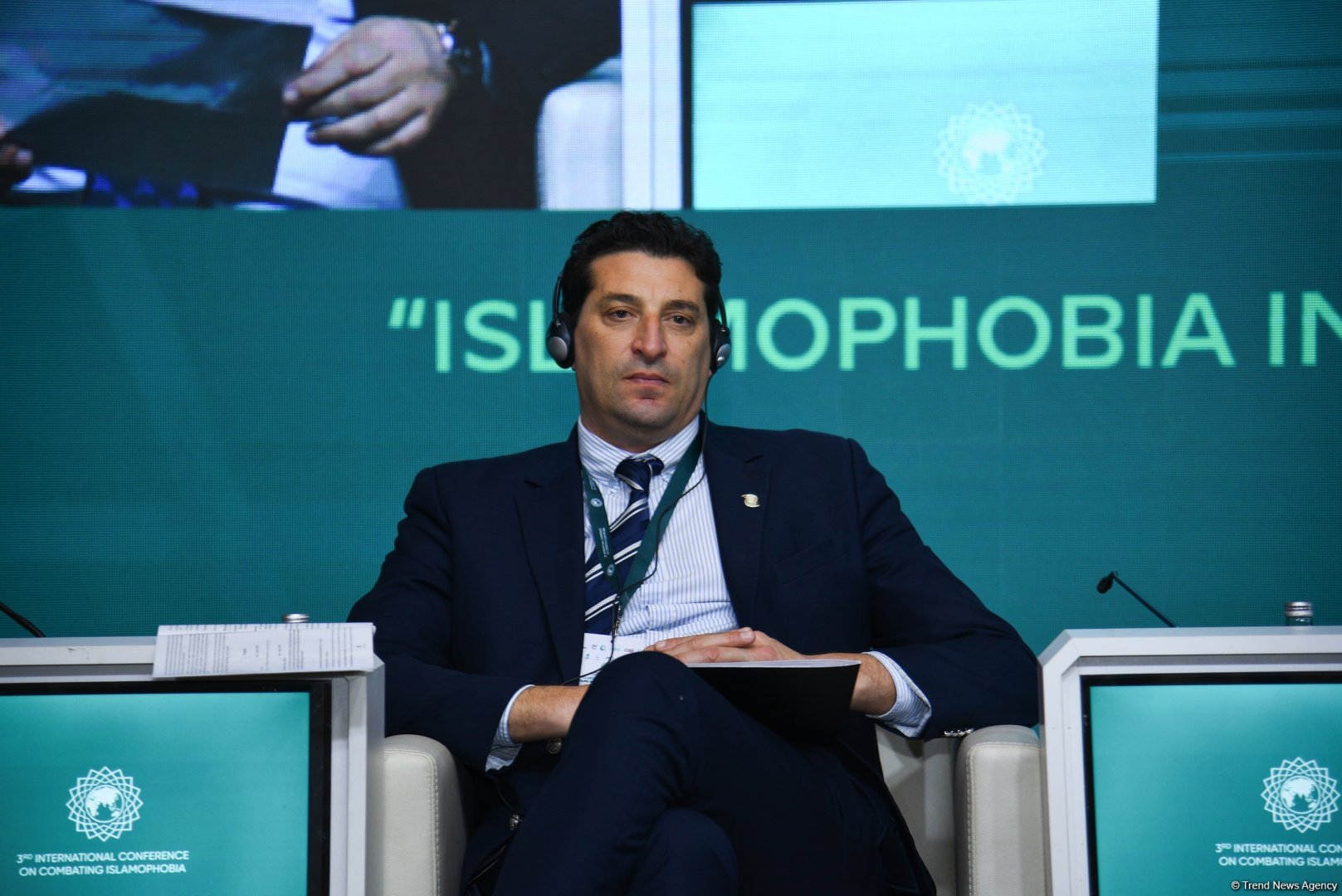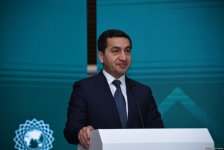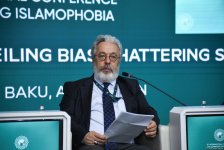BAKU, Azerbaijan, May 26. The first day of the international conference titled "Islamophobia in Focus: Unveiling Bias, Shattering Stigmas" has concluded in Azerbaijan's Baku, Trend reports.
Marking the 3rd anniversary of the International Day to Combat Islamophobia, the event is jointly organized by the Baku International Multiculturalism Centre, the Center of Analysis of International Relations, and the Baku Initiative Group.
Among the international partners of the conference are the G20 Interfaith Forum (IF20), the Organization of Islamic Cooperation (OIC), the Islamic World Educational, Scientific and Cultural Organization (ICESCO), the Doha International Center for Interfaith Dialogue (DICID), the Higher Committee of Human Fraternity (HCF), the Council of Muslim Elders, the Central Council of Muslims of Germany, the European Muslim Leaders’ Assembly (EULEMA), and the International Muslim Forum.
At the opening ceremony, Assistant to the President of the Republic of Azerbaijan and Head of the Foreign Policy Affairs Department of the Presidential Administration Hikmet Hajiyev read out the address of President of the Republic of Azerbaijan Ilham Aliyev to the participants of the international conference.
The main goal of the event is to establish an academic platform for discussing growing global and national trends targeting Muslims and Muslim-majority countries.
Scholars from nearly 40 countries, experts from international organizations, religious leaders, and representatives of non-governmental organizations are participating in the event.
The conference features discussions on the "Global Trends in Islamophobia: Challenges and Responses," "Anti-Muslim Hatred in Politics: Legal Frameworks and Advocacy Strategies," "Islamophobia in Different Contexts: Regional Perspectives," "Islamophobia in Media and Digital Platforms: How Artificial Intelligence Systems Can Spread and Reinforce Islamophobic Bias," "Women, Identity and Stereotypes: Navigating the Intersection of Religious and Cultural Prejudices", "Institutionalization of Anti-Muslim Legislation in Europe: Rhetoric in the Context of Radicalization of Islamophobic Propaganda", "Preserving Islamic Cultural Heritage in a Changing World" and "Youth Call for Inclusion: Combating Bias and Misconceptions".
The International Day to Combat Islamophobia is observed on March 15. The initiative was first adopted at a meeting of the Council of Foreign Ministers of the OIC in Niamey, Niger, on November 27-28, 2020. In 2022, the United Nations General Assembly officially designated March 15 as the International Day to Combat Islamophobia.
Chairman of the Board of the Center of Analysis of International Relations (AIR Center), Farid Shafiyev, addressing the event, noted that Islamophobia poses a serious threat to global stability.
“We are witnessing an increasingly alarming rise in Islamophobia and the strengthening of repressive state practices targeting Muslims. Across Europe, the rise of far-right political forces has led to measures that restrict Islamic self-expression, often under the guise of integration or assimilation. National narratives are increasingly shaped by populist rhetoric that stigmatizes Muslims and equates their religious identity with extremism,” Shafiyev said.
He emphasized that in South Asia, the growth of provocative rhetoric and hate crimes points to a troubling trend of state-led anti-Muslim nationalism, often justified by the notion of cultural unity.
“Islamophobia, therefore, poses a serious threat to global stability and cohesion, undermining international security and cooperation,” he stated.
Shafiyev also noted that Islamophobia is not merely hatred or fear directed at Muslims, but an ideological construct shaping Western perceptions of the East, producing distorted portrayals of Muslims.
Chairman of the Caucasus Muslims Board (CMB), Sheikh-ul-Islam Allahshukur Pashazade noted that Azerbaijan is actively promoting the principles of multiculturalism and Islamic unity.
“Azerbaijan, as an independent state that regards ethnic and religious diversity as a national treasure, has presented a model of interfaith and intercultural harmony to the world. It has become a country capable of advancing the ideas of multiculturalism and Islamic unity,” he emphasized.
Pashazade noted that the Azerbaijani state demonstrates deep respect for religion based on national and spiritual values.
“Today, we must firmly oppose those who misuse Islam for political purposes and distort its values. As a religious institution, we actively defend our position on all international forums and platforms dedicated to interfaith dialogue and cooperation,” he stated.
He recalled that during the Armenian occupation of Azerbaijani territories, not only were mosques destroyed, but the history of Christian churches was also falsified.
“Under those circumstances, the Caucasus Muslims Board was forced to suspend the activities of its imamate in those lands,” the religious leader noted.
Pashazade added that to restore the spiritual presence of the Azerbaijani people in Western Azerbaijan, a historically significant decision was recently made to resume the activities of the Iravan Imamate.
Executive Director of the Baku International Multiculturalism Center (BIMC) Ravan Hasanov stated that Islamophobia is not just a form of hatred but a betrayal of universal human values.
“Islamophobia, like all forms of hatred, is not simply a social ill. It is a deep moral failure, a breach of trust, and a betrayal of our shared human values. Unfortunately, in many Western societies, this form of discrimination has become normalized, appearing in hateful rhetoric, exclusionary policies, and even acts of violence,” Hasanov said.
The official emphasized that in France, public discourse often stigmatizes Muslim communities under the guise of secularism.
“Similarly, in India, the rise of religious nationalism has led to increased marginalization and hostility toward Muslims,” he added.
Hasanov stressed that these are not isolated incidents but part of a disturbing global trend that demands a united and urgent response based on justice, compassion, and the fundamental rights of every individual.
“Let us use this platform not only to condemn these injustices but also to strengthen genuine cooperation aimed at fostering inclusivity, mutual understanding, and dignity for all faiths,” concluded the executive director.
Speaking at the event, Deputy Secretary-General of the United Nations (UN), High Representative for the UN Alliance of Civilizations (UNAOC), Miguel Ángel Moratinos noted that Muslims around the world face institutional discrimination and socio-economic restrictions.
“Muslims face institutional discrimination and socio-economic limitations. These biases are reflected in stigmatization and unwarranted racial profiling, often fueled by distorted media portrayals and the rhetoric and policies of certain political leaders,” Moratinos stated.
He emphasized that everyone around the world should be able to practice their faith peacefully and without fear.
“Religious communities are being targeted globally. All places of worship must be sanctuaries — not arenas of violence and bloodshed,” he said.
Moratinos added that all forms of hatred and discrimination must be confronted.
In turn, Chairman of the State Committee for Relations with Religious Organizations Ramin Mammadov stated that ensuring religious diversity holds a significant place in Azerbaijan’s state policy.
"Today, we face an undeniable reality: Islamophobia is growing worldwide. This troubling trend goes far beyond isolated incidents of prejudice or intolerance. Increasingly, it manifests in state policies and mainstream as well as digital media narratives," Mammadov emphasized.
He noted that the rising number of Islamophobic incidents in various regions points to a broader systemic problem threatening the values of pluralism, coexistence, and mutual respect — the foundations of global peace and security.
"The global rise in Islamophobia forces us to ask: why are so many people afraid of Islam and Muslims? Does the image of Islam formed in certain societies reflect reality, or is it shaped by misinformation, distorted truths, and entrenched prejudices?" Mammadov asked.
He went on to say that prejudice tries to rationalize fear, while fear naturally sets off a defense mechanism. Isolation, bigotry, and severe societal division are the results of this dynamic.
OIC Secretary-General Hussein Ibrahim Taha, speaking at the event, stressed that the Organization of Islamic Cooperation (OIC) has commended Azerbaijan’s unwavering dedication to strengthening collective efforts against Islamophobia.
“Azerbaijan demonstrates exemplary leadership by regularly organizing such high-level international conferences,” the message read.
Taha pointed out that gatherings like this are a wake-up call, reminding us that Islamophobia and all shades of xenophobia are simply not on the table. He pointed out that hatred and intolerance can spiral out of control, leading to catastrophic violence, particularly when stoked by religious bias.
“We hope this conference will yield concrete results in combating this phenomenon, particularly amid the alarming rise in Islamophobic incidents, hate crimes, persecution, and systematic discrimination across many regions of the world,” the OIC Secretary-General concluded.
Ibrahim Saleh Al-Naimi, Deputy Minister of Education of Qatar and Chair of the Doha International Center for Interfaith Dialogue (DICID) stated that fighting Islamophobia demands deep-rooted educational initiatives.
Al-Naimi noted that Islamophobia is fueled by distorted translations of Islamic texts, biased media coverage, and extreme political rhetoric.
“It leads to misunderstanding, hatred, and violence — ranging from discrimination to terror attacks, such as in Christchurch, where 51 Muslims were killed,” he said.
He mentioned that public acts of trampling on the Quran, like the burning that took place in Sweden in June 2023, are a real can of worms.
“These actions escalate aggression and deepen divisions within societies,” Al-Naimi stressed.
Moreover, António de Almeida Ribeiro, acting Secretary General of the International Centre for Interreligious and Intercultural Dialogue (KAICIID) pointed out that digital space has become a powerful tool for spreading Islamophobic rhetoric.
“Islamophobia is not a new phenomenon, but it is intensifying today. This has become a systemic problem, supported by numerous data and evidence from around the world,” he noted.
Online bigotry and discrimination have grown in recent years, and Ribeiro highlighted this as a major factor fueling religious intolerance. Communities are especially at risk because institutional responses are slow, and the internet has become a potent medium for the dissemination of extremist discourse.
“At KAICIID, our mission is to use interreligious and intercultural dialogue as a transformative force capable of countering hate speech, religious discrimination, and incitement to violence,” the official stressed.

